Shows
 The Art of AssemblyWhat is considered an acceptable opinion has been increasingly narrowed down in recent years. The 30th edition of The Art of Assembly asks where the limits of freedom of expression lie, what we have to listen to, how we can combine the need for safe spaces with the need for agonistic spheres – and when the state should intervene. Looking at the history of the Enlightenment, philosopher Susan Neiman doubts that the explosive current debates in Germany, for example, are really about freedom of expression. The historian Aziz Al-Azmeh profiles Arab and Islamic topoi present in Germany today and juxtaposes considerations of...2025-05-161h 45
The Art of AssemblyWhat is considered an acceptable opinion has been increasingly narrowed down in recent years. The 30th edition of The Art of Assembly asks where the limits of freedom of expression lie, what we have to listen to, how we can combine the need for safe spaces with the need for agonistic spheres – and when the state should intervene. Looking at the history of the Enlightenment, philosopher Susan Neiman doubts that the explosive current debates in Germany, for example, are really about freedom of expression. The historian Aziz Al-Azmeh profiles Arab and Islamic topoi present in Germany today and juxtaposes considerations of...2025-05-161h 45 The Art of AssemblyXXIX: The Right to Flow. Water as Source of Life, Conflict, and Legal Utopias (With Edson Krenak Naknanuk, Erena Rangimarie Omaki Ransfield Rhöse, Kathrin Röggla, Elisabeth von Samsonow & Florian Malzacher)Water is a main protagonist of all human mythologies, a metaphor for life itself – and at the same time subject of countless, very concrete and rapidly growing conflicts. The 29th edition of The Art of Assembly asks how water can be considered not as a commodity based on concepts like ownership and exploitation, but rather as a common good or even as a partner: Erena Rangimarie Omaki Ransfield Rhöse, member of the royal family from the Waikato tribe, opens the conversation with her intimate knowledge about the connection of the Maori people with the Whanganui in Aotearoa (New Zealand), the...2024-09-211h 52
The Art of AssemblyXXIX: The Right to Flow. Water as Source of Life, Conflict, and Legal Utopias (With Edson Krenak Naknanuk, Erena Rangimarie Omaki Ransfield Rhöse, Kathrin Röggla, Elisabeth von Samsonow & Florian Malzacher)Water is a main protagonist of all human mythologies, a metaphor for life itself – and at the same time subject of countless, very concrete and rapidly growing conflicts. The 29th edition of The Art of Assembly asks how water can be considered not as a commodity based on concepts like ownership and exploitation, but rather as a common good or even as a partner: Erena Rangimarie Omaki Ransfield Rhöse, member of the royal family from the Waikato tribe, opens the conversation with her intimate knowledge about the connection of the Maori people with the Whanganui in Aotearoa (New Zealand), the...2024-09-211h 52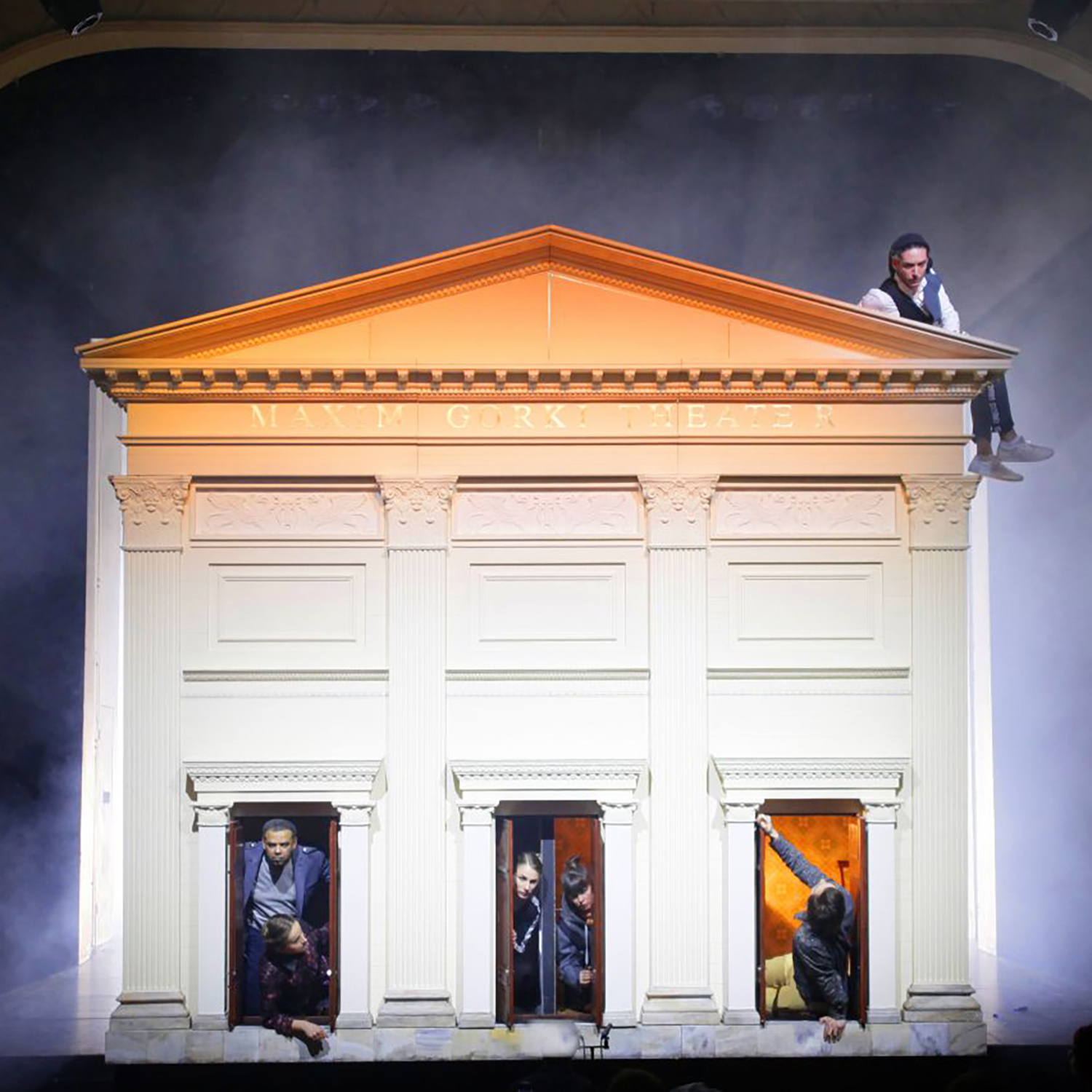 The Art of AssemblyXXVIII: What Is to Be Done? Dealing with New-Right Culture Wars (Amelie Deuflhard, Oliver Frljić, Thomas Krüger, Joanna Warsza & Florian Malzacher)The net is tightening. What has long been a reality in other countries is also becoming increasingly noticeable in Germany – and not just in the east: new-right politicians are also gaining power in cultural policy, exerting pressure and threatening individual artists. For Amelie Deuflhard, director of the Kampnagel cultural centre in Hamburg, intimidation attempts by the AfD are part of everyday life. Theatre director Oliver Frljić has repeatedly provoked often violent reactions with his productions in Croatia, Serbia, Poland and Germany. Thomas Krüger, President of the German Bundeszentrale für politische Bildung (Federal Agency for Civic Education), has been looki...2024-05-171h 47
The Art of AssemblyXXVIII: What Is to Be Done? Dealing with New-Right Culture Wars (Amelie Deuflhard, Oliver Frljić, Thomas Krüger, Joanna Warsza & Florian Malzacher)The net is tightening. What has long been a reality in other countries is also becoming increasingly noticeable in Germany – and not just in the east: new-right politicians are also gaining power in cultural policy, exerting pressure and threatening individual artists. For Amelie Deuflhard, director of the Kampnagel cultural centre in Hamburg, intimidation attempts by the AfD are part of everyday life. Theatre director Oliver Frljić has repeatedly provoked often violent reactions with his productions in Croatia, Serbia, Poland and Germany. Thomas Krüger, President of the German Bundeszentrale für politische Bildung (Federal Agency for Civic Education), has been looki...2024-05-171h 47 The Art of AssemblyXXVII: The Arts as Playground for the Urban White Middle Class? (Glenn Bech, Sahar Rahimi, Julia Wissert & Florian Malzacher)For years, theatres, museums and other art institutions have been trying to broaden their audiences – with limited success: the (Western) art field still mainly assembles a white, urban middle class by protecting its borders through distinction and offering cultural capital to those who find access. The 27th edition of The Art of Assembly takes an intersectional look at persistent exclusions and privileges: Author and psychologist Glenn Bech, who used to be ashamed about his working-class roots, confronts a homophobic society as much as an urban arts scene that seeks to appropriate the gay writer from the provinces. Theatre-maker Sahar Rahimi raises...2024-03-191h 59
The Art of AssemblyXXVII: The Arts as Playground for the Urban White Middle Class? (Glenn Bech, Sahar Rahimi, Julia Wissert & Florian Malzacher)For years, theatres, museums and other art institutions have been trying to broaden their audiences – with limited success: the (Western) art field still mainly assembles a white, urban middle class by protecting its borders through distinction and offering cultural capital to those who find access. The 27th edition of The Art of Assembly takes an intersectional look at persistent exclusions and privileges: Author and psychologist Glenn Bech, who used to be ashamed about his working-class roots, confronts a homophobic society as much as an urban arts scene that seeks to appropriate the gay writer from the provinces. Theatre-maker Sahar Rahimi raises...2024-03-191h 59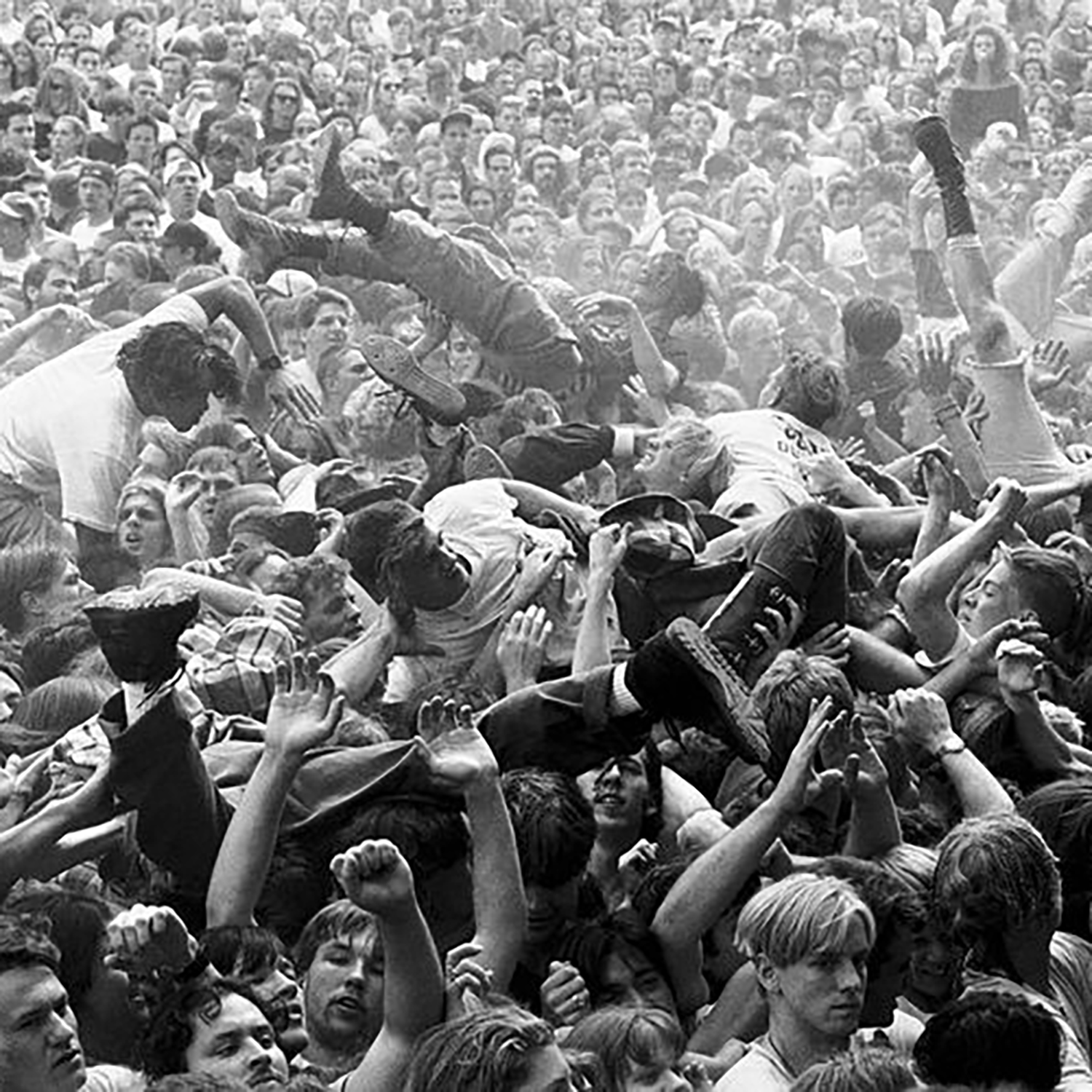 The Art of AssemblyXXVI: Impacts of Sound – Sounds of Impact (Fabio Cervi / Earshot, Atiyyah Khan, Brandon LaBelle, Xenia Koghilakil & Florian Malzacher)Acoustic spaces play a part in defining borders and creating communities. While they fundamentally influence the shaping of public space, their ideological underpinnings, power structures and implications are often unacknowledged. The 26th edition of The Art of Assembly investigates how reconfiguring sonic environments and practices might lead to new modes of listening and the questioning of cultural hegemonies. Sound theorist Brandon LaBelle engages notions of social equality and acoustic justice, pointing out ways in which listening norms and conventions affect community-building and social participation. Architect and musician Fabio Cervi discusses his work as assistant audio investigator at Earshot, an agency...2023-11-302h 03
The Art of AssemblyXXVI: Impacts of Sound – Sounds of Impact (Fabio Cervi / Earshot, Atiyyah Khan, Brandon LaBelle, Xenia Koghilakil & Florian Malzacher)Acoustic spaces play a part in defining borders and creating communities. While they fundamentally influence the shaping of public space, their ideological underpinnings, power structures and implications are often unacknowledged. The 26th edition of The Art of Assembly investigates how reconfiguring sonic environments and practices might lead to new modes of listening and the questioning of cultural hegemonies. Sound theorist Brandon LaBelle engages notions of social equality and acoustic justice, pointing out ways in which listening norms and conventions affect community-building and social participation. Architect and musician Fabio Cervi discusses his work as assistant audio investigator at Earshot, an agency...2023-11-302h 03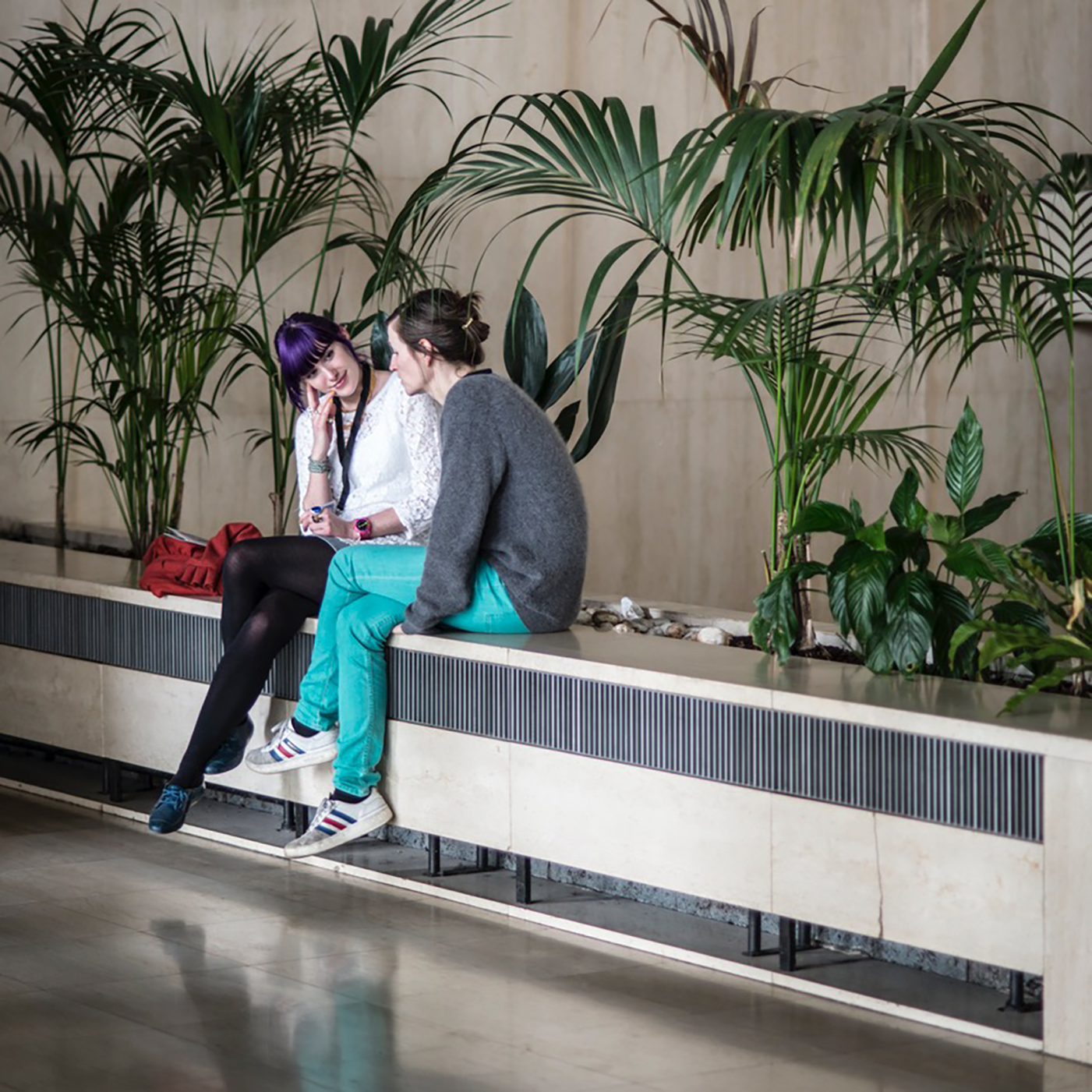 The Art of AssemblyXXV: Assemblies of Individuals – Live Work in Non-Performance Spaces (Mette Edvardsen, Tino Sehgal & Florian Malzacher)Theatres regulate space and time for their audiences and demand collective engagement. Other kinds of venues – like museums or libraries – are designed to separate and isolate even large crowds and promote liberal ideas of emancipation. Everyone decides for themselves how long they want to stay and engage. The 25th edition of “The Art of Assembly” looks at artistic approaches to assemblies in cultural places not originally intended for performance. Choreographer Mette Edvardsen looks for soft spaces where her discrete performances become a porous part of the environment, where performers and audiences are in more than one space at the same time. Ar...2023-11-151h 42
The Art of AssemblyXXV: Assemblies of Individuals – Live Work in Non-Performance Spaces (Mette Edvardsen, Tino Sehgal & Florian Malzacher)Theatres regulate space and time for their audiences and demand collective engagement. Other kinds of venues – like museums or libraries – are designed to separate and isolate even large crowds and promote liberal ideas of emancipation. Everyone decides for themselves how long they want to stay and engage. The 25th edition of “The Art of Assembly” looks at artistic approaches to assemblies in cultural places not originally intended for performance. Choreographer Mette Edvardsen looks for soft spaces where her discrete performances become a porous part of the environment, where performers and audiences are in more than one space at the same time. Ar...2023-11-151h 42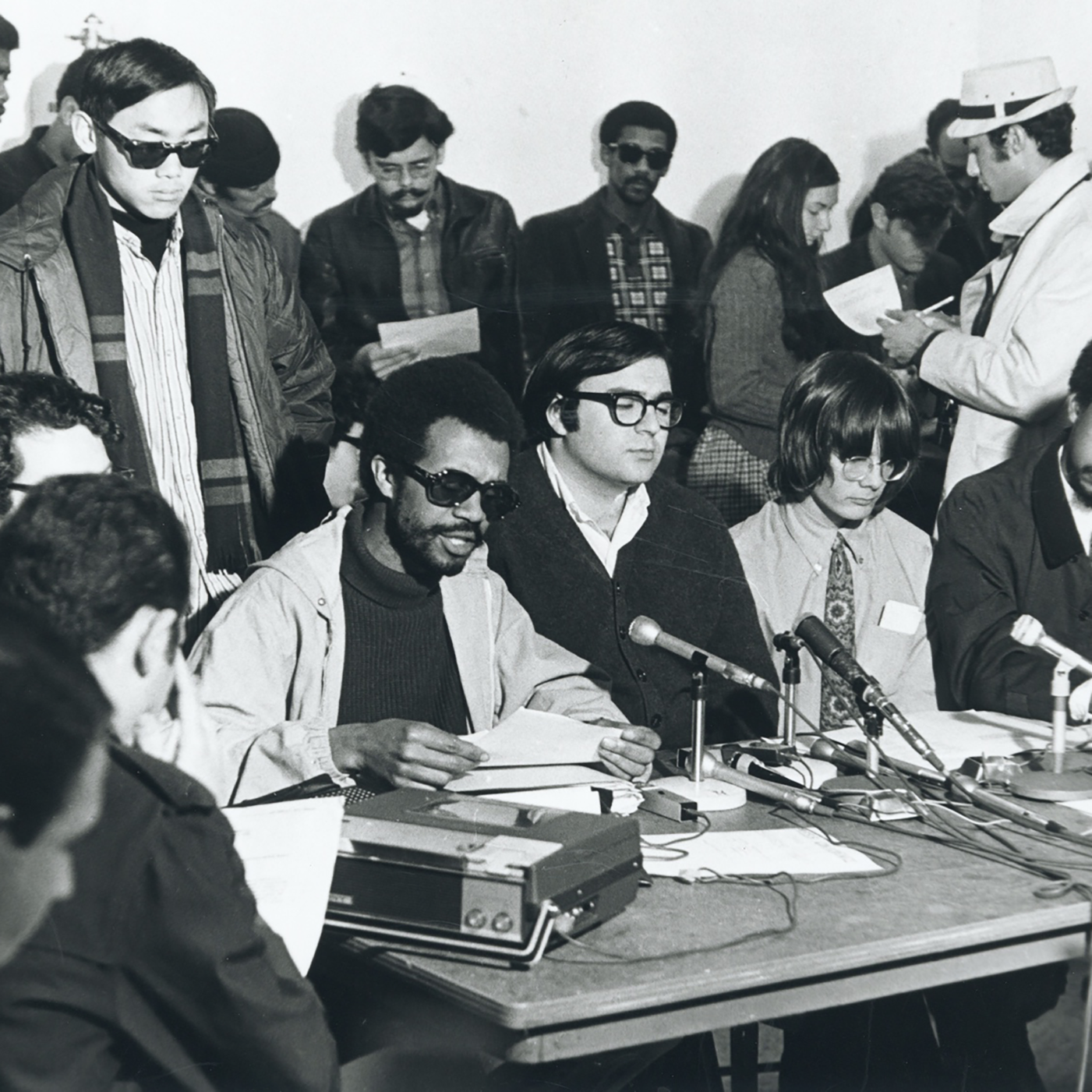 The Art of AssemblyXXIV: Interwoven Bodies (Michael Hardt, Michael Kliën, Pedro Lasch, Corina Stan & Florian Malzacher)How do we deliberate before and beyond language, how do we create relations without words, how are our bodies determined by the spaces we are in? The 25th edition of The Art of Assembly takes place in the context of Michael Kliën’s “Parliament”, a social choreography in which citizen-performers work in silence to hold council amidst the elemental phenomena and fundamental concerns of collectively lived experience. Political philosopher and literature theorist Michael Hardt together with Antonio Negri coined the term Multitude, describing a „multiplicity of singularities acting together“: a network that is neither homogeneous nor self-identical. Visual artist Pedro Lasch...2023-09-281h 43
The Art of AssemblyXXIV: Interwoven Bodies (Michael Hardt, Michael Kliën, Pedro Lasch, Corina Stan & Florian Malzacher)How do we deliberate before and beyond language, how do we create relations without words, how are our bodies determined by the spaces we are in? The 25th edition of The Art of Assembly takes place in the context of Michael Kliën’s “Parliament”, a social choreography in which citizen-performers work in silence to hold council amidst the elemental phenomena and fundamental concerns of collectively lived experience. Political philosopher and literature theorist Michael Hardt together with Antonio Negri coined the term Multitude, describing a „multiplicity of singularities acting together“: a network that is neither homogeneous nor self-identical. Visual artist Pedro Lasch...2023-09-281h 43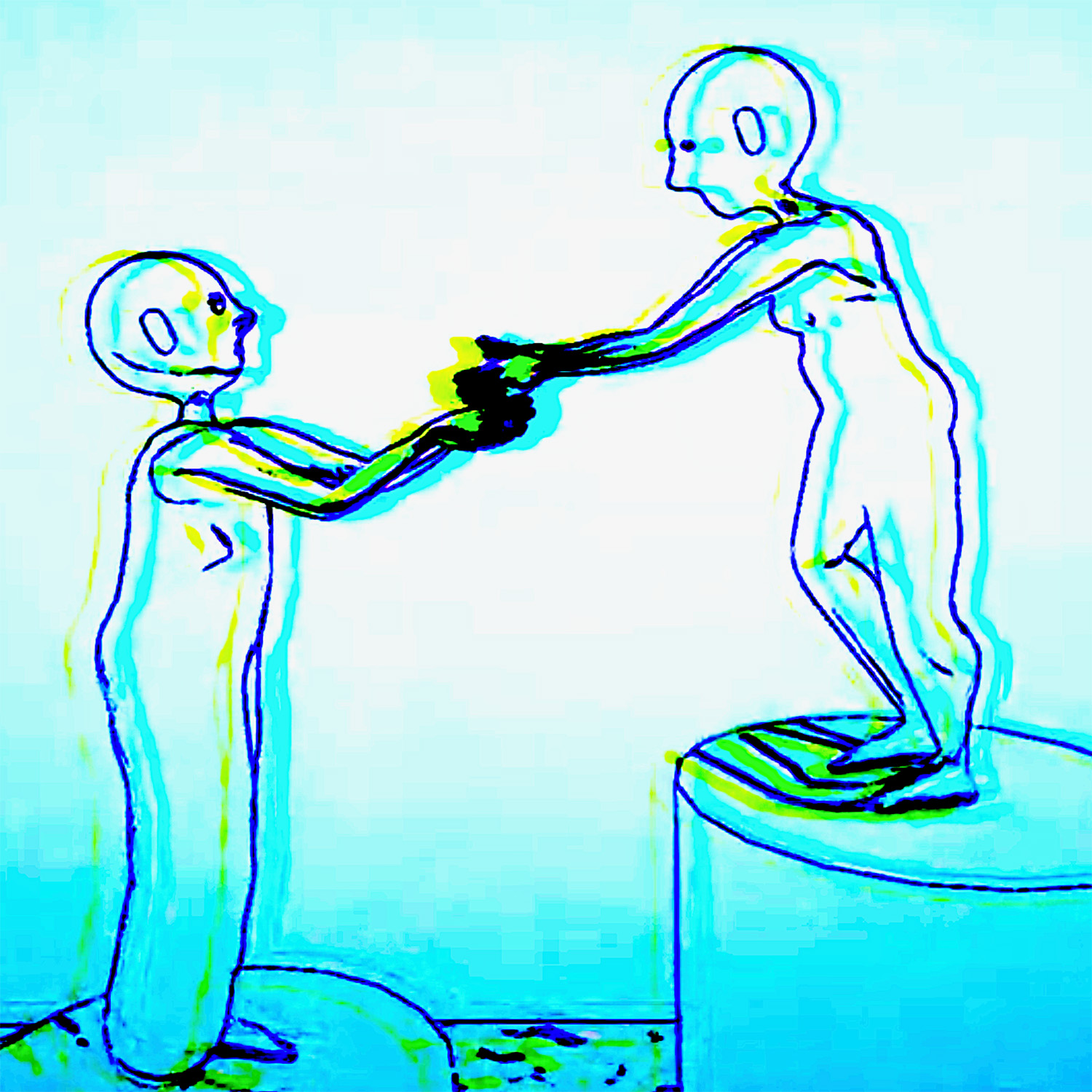 The Art of AssemblyXXIII: Gathering (in the) Cloud. Digital Performance Beyond Zoom (Kent Bye, Jaamil Olawale Kosoko, Sarah Rothberg & Florian Malzacher)The pandemic introduced virtual gatherings into many people’s lives. Team meetings, activist assemblies, even theater performances were now attended from kitchen chairs, sofas, and beds. Both activists and performance makers (usually strong believers in the need for bodily presence) resorted to screens–and if only because there was no choice. Where are we now and what comes after Zoom? Is the metaverse more than a promise or threat? In this edition of the Art of Assembly we look at how performing arts are approaching digital realms. Journalist Kent Bye, who hosted hundreds of game developers, academics, creatives, and enthusiasts in t...2023-05-191h 25
The Art of AssemblyXXIII: Gathering (in the) Cloud. Digital Performance Beyond Zoom (Kent Bye, Jaamil Olawale Kosoko, Sarah Rothberg & Florian Malzacher)The pandemic introduced virtual gatherings into many people’s lives. Team meetings, activist assemblies, even theater performances were now attended from kitchen chairs, sofas, and beds. Both activists and performance makers (usually strong believers in the need for bodily presence) resorted to screens–and if only because there was no choice. Where are we now and what comes after Zoom? Is the metaverse more than a promise or threat? In this edition of the Art of Assembly we look at how performing arts are approaching digital realms. Journalist Kent Bye, who hosted hundreds of game developers, academics, creatives, and enthusiasts in t...2023-05-191h 25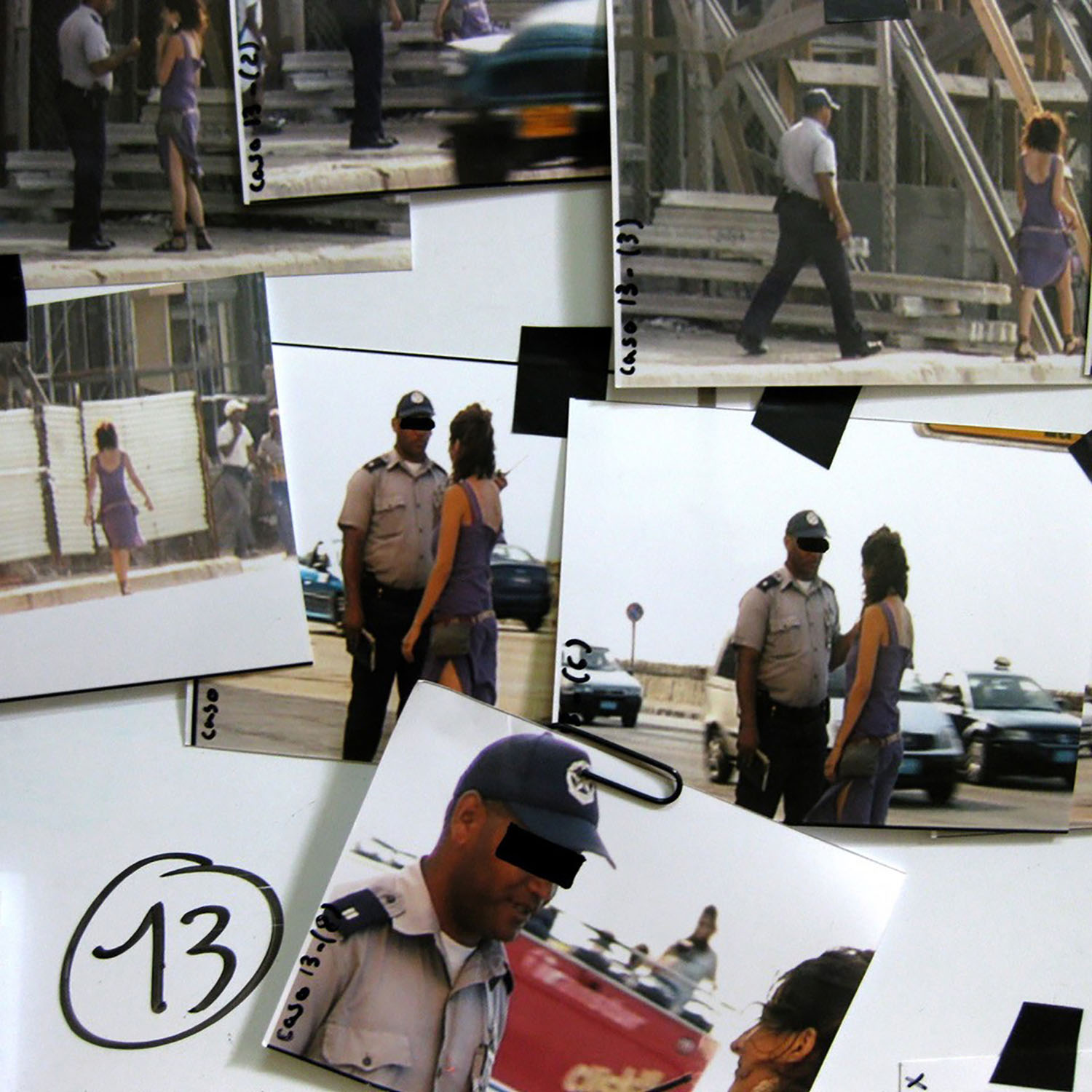 The Art of AssemblyXXII: Provoke Me if You Can. The Crisis of Artistic Disturbances (Núria Güell, Renzo Martens & Florian Malzacher)Provocations as a means of disturbance have long been part of artists’ as well as activists’ basic toolkits. But in a time when many already feel permanently snubbed, artistic provocations often seem stale and redundant. The demand for repair, care, and healing dominates artistic discourse. On the other hand, when climate activists glue themselves to highways or oil paintings, emotions run high throughout society. Meanwhile, the political far-right blatantly focuses on lowering inhibition thresholds: Continued taboo-breaking pushes the boundaries of what is say- and doable. Núria Güell’s artistic practice continuously challenges moral and legal conventions when, for example...2023-02-141h 34
The Art of AssemblyXXII: Provoke Me if You Can. The Crisis of Artistic Disturbances (Núria Güell, Renzo Martens & Florian Malzacher)Provocations as a means of disturbance have long been part of artists’ as well as activists’ basic toolkits. But in a time when many already feel permanently snubbed, artistic provocations often seem stale and redundant. The demand for repair, care, and healing dominates artistic discourse. On the other hand, when climate activists glue themselves to highways or oil paintings, emotions run high throughout society. Meanwhile, the political far-right blatantly focuses on lowering inhibition thresholds: Continued taboo-breaking pushes the boundaries of what is say- and doable. Núria Güell’s artistic practice continuously challenges moral and legal conventions when, for example...2023-02-141h 34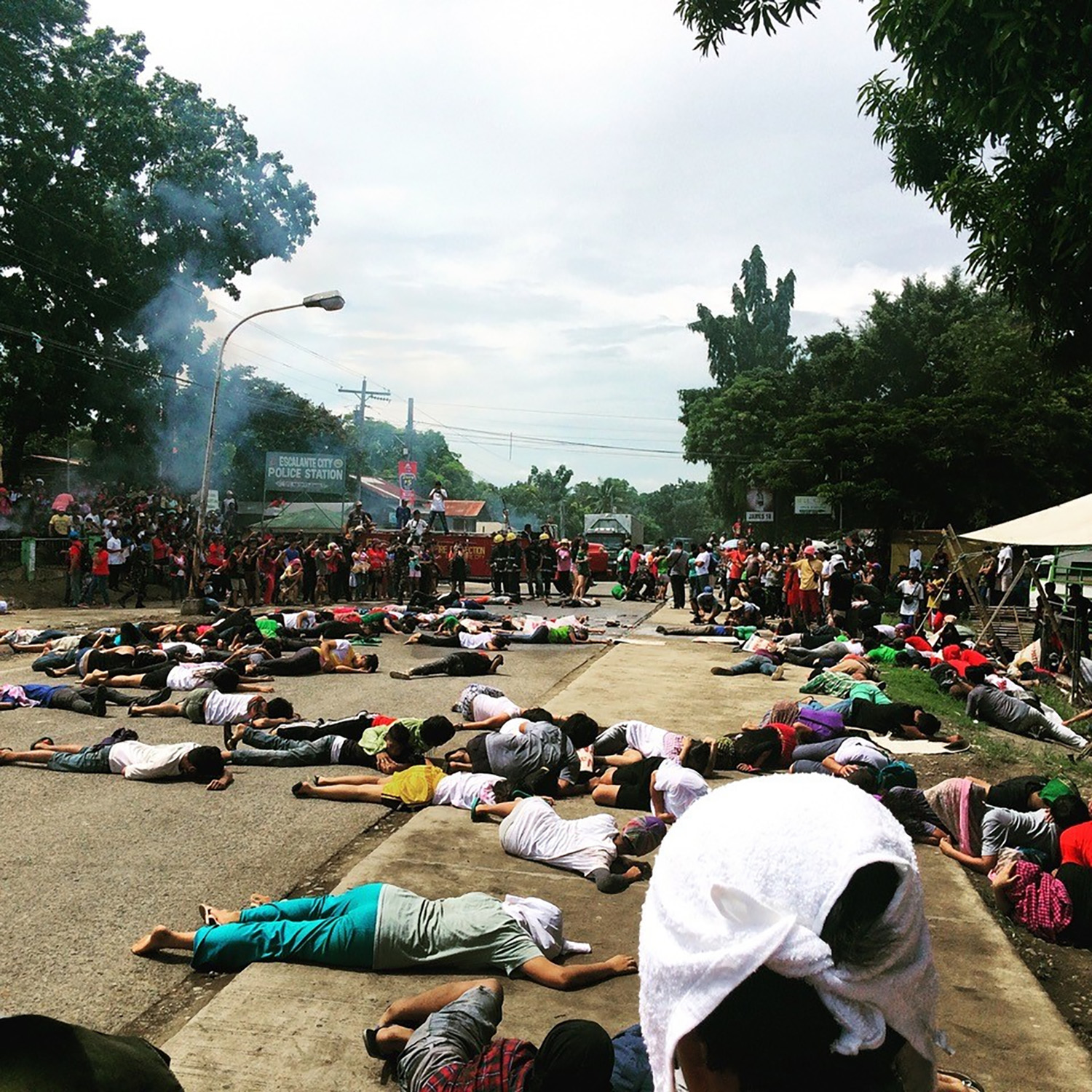 The Art of AssemblyXX: Nous Accusons! People’s Tribunals between Politics, Activism & Art (Lisa Ito-Tapang / Concerned Artists of the Philippines, Wolfgang Kaleck / ECCHR, Madlyn Sauer & Florian Malzacher)Inspiriert von Volkstribunalen wie demjenigen, das der Philosoph Bertrand Russell 1966 zur Untersuchung amerikanischer Kriegsverbrechen im Vietnamkrieg organisierte, aber auch von künstlerischen Einflüssen wie Brechts Lernspielen oder dem populären Agitprop-Theater der frühen Sowjetunion, sind Bürgergerichte zwischen Aktivismus und Kunst zu einer dramaturgischen Form und einem politischen Instrument zugleich geworden.2022-11-151h 52
The Art of AssemblyXX: Nous Accusons! People’s Tribunals between Politics, Activism & Art (Lisa Ito-Tapang / Concerned Artists of the Philippines, Wolfgang Kaleck / ECCHR, Madlyn Sauer & Florian Malzacher)Inspiriert von Volkstribunalen wie demjenigen, das der Philosoph Bertrand Russell 1966 zur Untersuchung amerikanischer Kriegsverbrechen im Vietnamkrieg organisierte, aber auch von künstlerischen Einflüssen wie Brechts Lernspielen oder dem populären Agitprop-Theater der frühen Sowjetunion, sind Bürgergerichte zwischen Aktivismus und Kunst zu einer dramaturgischen Form und einem politischen Instrument zugleich geworden.2022-11-151h 52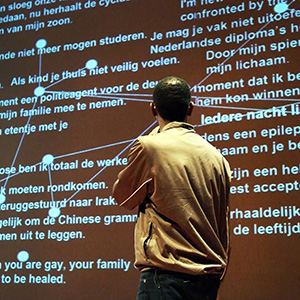 The Art of AssemblyXIX: Safe vs. Brave? Art Between Sanctuary and Confrontation (Miriam Ibrahim, Edit Kaldor und Ingo Niermann / Army of Love & Florian Malzacher)Contemporary stages have often become places to exhibit one’s own injuries, traumas, or shame. Theater as a safer space – in the… Read more XIX: Safe vs. Brave? Art Between Sanctuary and Confrontation (Miriam Ibrahim, Edit Kaldor und Ingo Niermann / Army of Love & Florian Malzacher)2022-11-042h 05
The Art of AssemblyXIX: Safe vs. Brave? Art Between Sanctuary and Confrontation (Miriam Ibrahim, Edit Kaldor und Ingo Niermann / Army of Love & Florian Malzacher)Contemporary stages have often become places to exhibit one’s own injuries, traumas, or shame. Theater as a safer space – in the… Read more XIX: Safe vs. Brave? Art Between Sanctuary and Confrontation (Miriam Ibrahim, Edit Kaldor und Ingo Niermann / Army of Love & Florian Malzacher)2022-11-042h 05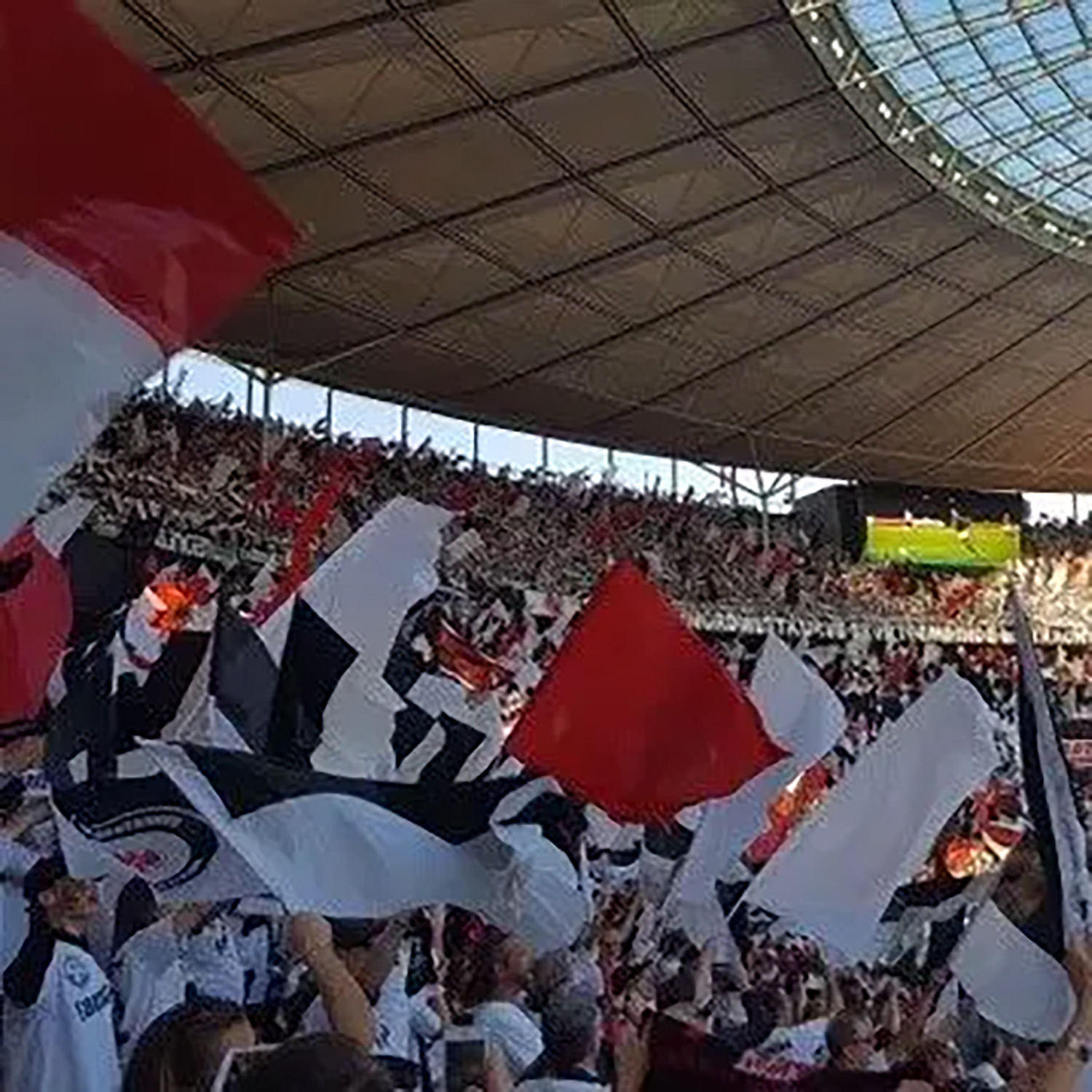 The Art of AssemblyXVIII: Body Next to Body. Gathering Masses in Sport Events (Z. Blace, Caitlin Davis Fisher, Michael Gabriel & Florian Malzacher)The energy of body next to body. The excitement of the game. Winning, loosing, bursts of emotions. Shouting, singing, yelling, joy, and anger – sometimes on the verge of violence. Elite sport events bring together masses of people across nations, they are gathering with an immense personal importance for many and at the same time highly politicized billion-dollar businesses, streamlined for maximum profits on the borders of legality. This edition of The Art of Assembly takes place 50 years after the Olympic games in Munich, right in the middle of the legendary Olympiapark, envisioned as an open, democratic, and egalitarian space but im...2022-07-111h 51
The Art of AssemblyXVIII: Body Next to Body. Gathering Masses in Sport Events (Z. Blace, Caitlin Davis Fisher, Michael Gabriel & Florian Malzacher)The energy of body next to body. The excitement of the game. Winning, loosing, bursts of emotions. Shouting, singing, yelling, joy, and anger – sometimes on the verge of violence. Elite sport events bring together masses of people across nations, they are gathering with an immense personal importance for many and at the same time highly politicized billion-dollar businesses, streamlined for maximum profits on the borders of legality. This edition of The Art of Assembly takes place 50 years after the Olympic games in Munich, right in the middle of the legendary Olympiapark, envisioned as an open, democratic, and egalitarian space but im...2022-07-111h 51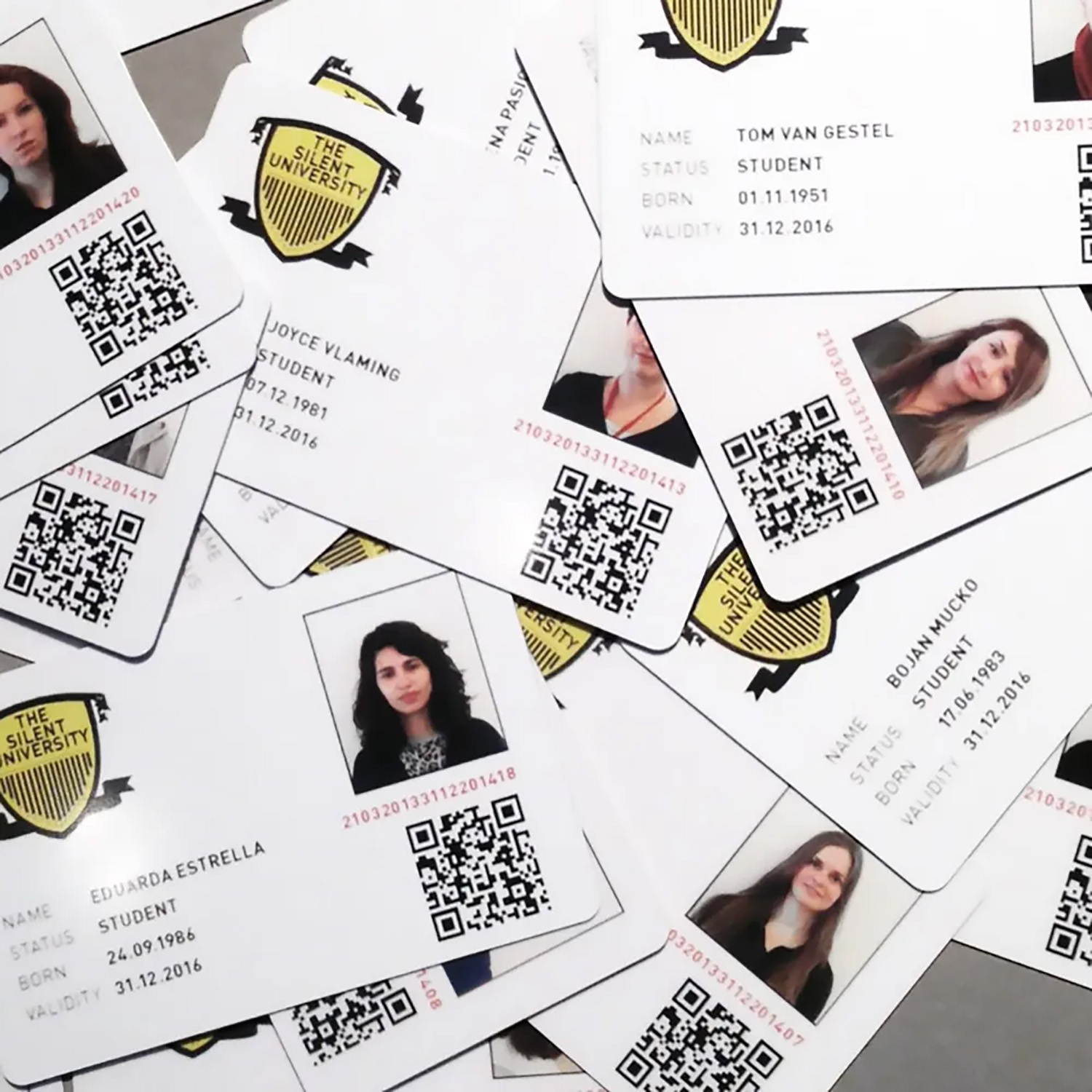 The Art of AssemblyXVII: Assembling Knowledge (Satu Herrala, Lotte van den Berg, Ahmet Öğüt & Florian Malzacher)At least since Joseph Beuys’ legendary “International College for Creativity and Interdisciplinary Research” artistic assemblies are also a playing field for the production and transfer of knowledge. The 17th edition of “The Art of Assembly investigates along concrete artistic practices how tools and experiences from performing arts offer settings and strategies for unexpected communication and transversal education: Choreographer and curator Satu Herrala in her works focusses on embodied knowledges in artistic and curatorial work, creating conditions for art to summon collective and transformative agencies. Artist Ahmet Öğüt – initiator of the Silent University, a solidarity-based knowledge exchange platform by displaced people and forced mi...2022-06-081h 39
The Art of AssemblyXVII: Assembling Knowledge (Satu Herrala, Lotte van den Berg, Ahmet Öğüt & Florian Malzacher)At least since Joseph Beuys’ legendary “International College for Creativity and Interdisciplinary Research” artistic assemblies are also a playing field for the production and transfer of knowledge. The 17th edition of “The Art of Assembly investigates along concrete artistic practices how tools and experiences from performing arts offer settings and strategies for unexpected communication and transversal education: Choreographer and curator Satu Herrala in her works focusses on embodied knowledges in artistic and curatorial work, creating conditions for art to summon collective and transformative agencies. Artist Ahmet Öğüt – initiator of the Silent University, a solidarity-based knowledge exchange platform by displaced people and forced mi...2022-06-081h 39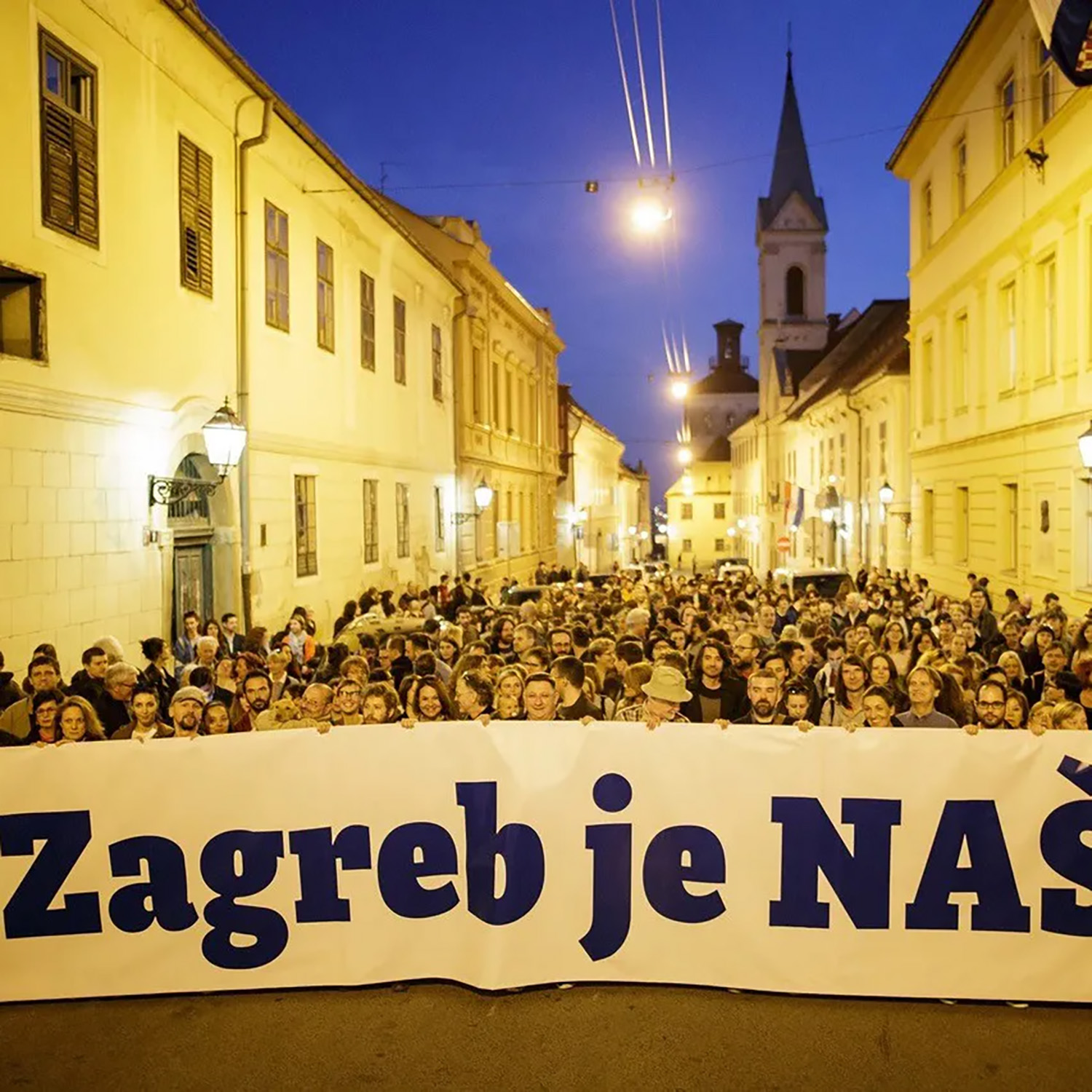 The Art of AssemblyXVI: Shifting Power. When Grassroots Movements Win Elections (Athena Athanasiou, Teodor Celakoski, Marcelo Expósito & Florian Malzacher)When activist movements gain momentum, even win elections after many years of struggle and work on the ground, there is a lot of enthusiasm – but also larger-than-life expectations. A diverse electorate with often very different expectations demands immediate and fundamental shifts of politics. The parties once in power just wait for any opportunity to attack. The former establishment uses its long-knit networks to slow down any transition. And former allies accuse the elected representatives of their compromises. So, what does it actually mean to govern, to change structures, work with a large administration, include the political base, and accomplish concrete ch...2022-05-092h 03
The Art of AssemblyXVI: Shifting Power. When Grassroots Movements Win Elections (Athena Athanasiou, Teodor Celakoski, Marcelo Expósito & Florian Malzacher)When activist movements gain momentum, even win elections after many years of struggle and work on the ground, there is a lot of enthusiasm – but also larger-than-life expectations. A diverse electorate with often very different expectations demands immediate and fundamental shifts of politics. The parties once in power just wait for any opportunity to attack. The former establishment uses its long-knit networks to slow down any transition. And former allies accuse the elected representatives of their compromises. So, what does it actually mean to govern, to change structures, work with a large administration, include the political base, and accomplish concrete ch...2022-05-092h 03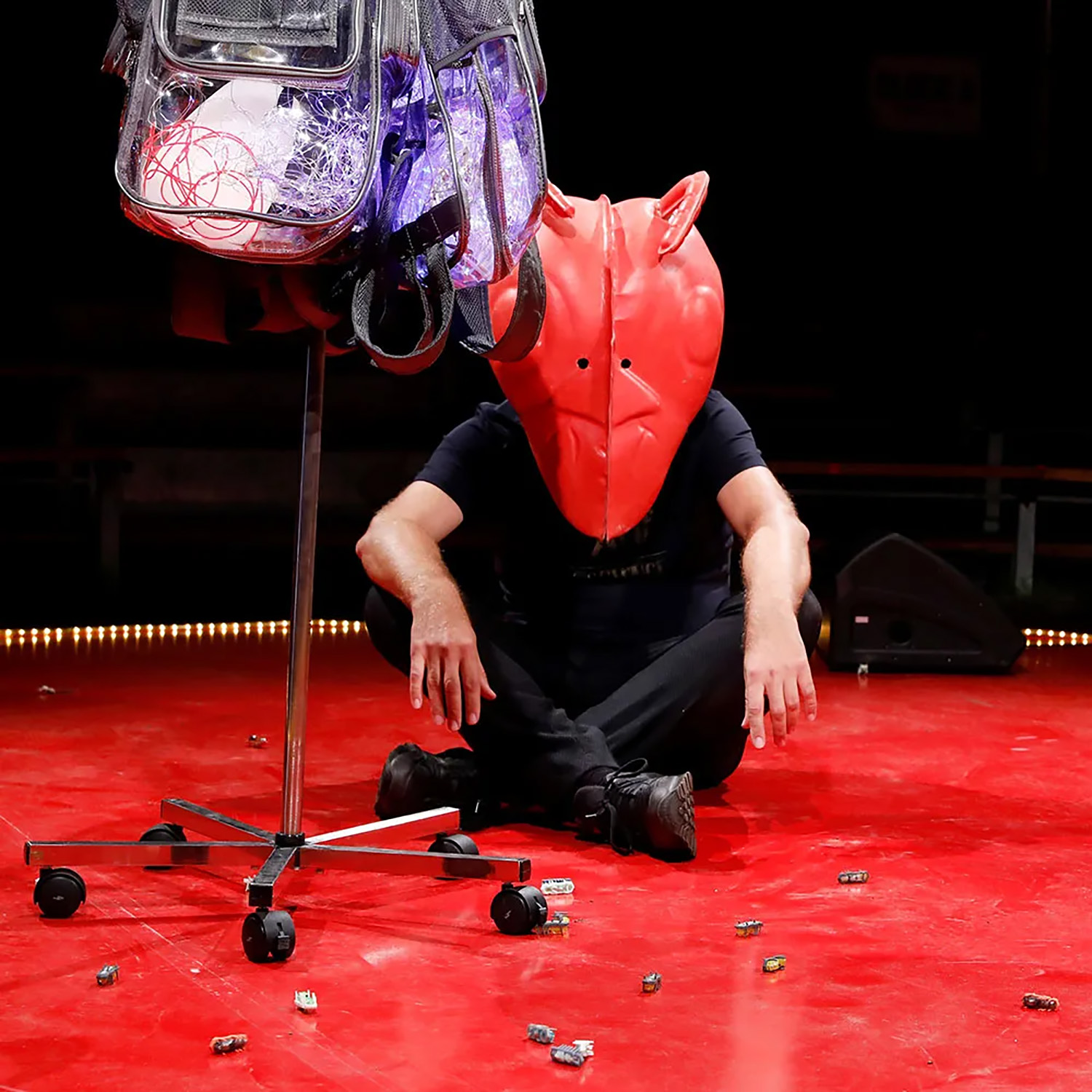 The Art of AssemblyXV: Parliaments of Things and Beings (Eva von Redecker, Alexander Karschnia/andcompany&Co. & Florian Malzacher)The question of who or what has to be represented draws wider circles than most assemblies with their focus on humans. In his fundamental critique of modernity, the sociologist of science Bruno Latour sketched out a “parliament of things” as early as 1989, in which people, animals, plants, and objects jointly determine how they even could decide and how they want to live together. Thirty years later, Latour sums up, “The question is no longer to grand rights to non-humans, but to accept to be dependent on them.” But what does that actually mean? How can non-human representation look like, what would be...2022-04-081h 42
The Art of AssemblyXV: Parliaments of Things and Beings (Eva von Redecker, Alexander Karschnia/andcompany&Co. & Florian Malzacher)The question of who or what has to be represented draws wider circles than most assemblies with their focus on humans. In his fundamental critique of modernity, the sociologist of science Bruno Latour sketched out a “parliament of things” as early as 1989, in which people, animals, plants, and objects jointly determine how they even could decide and how they want to live together. Thirty years later, Latour sums up, “The question is no longer to grand rights to non-humans, but to accept to be dependent on them.” But what does that actually mean? How can non-human representation look like, what would be...2022-04-081h 42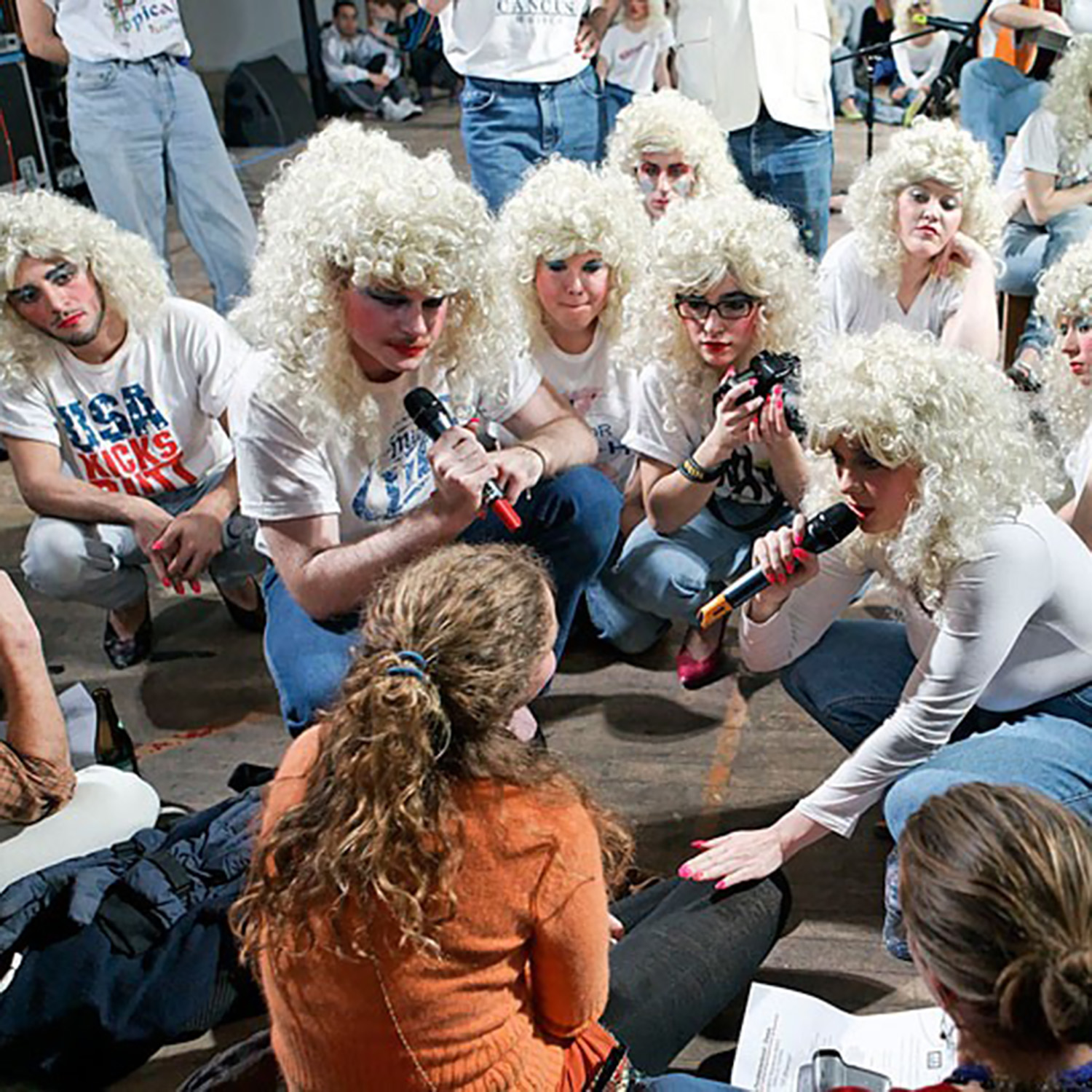 The Art of AssemblyXIV: Audience as Allies, Witnesses, and Enemies (Claire Bishop, Tania Bruguera, Ann Liv Young & Florian Malzacher)Ever since the audience light in most Western theatres has been turned off in the 19th century artists have tried to push spectators out of their comfort zone again. The 14th episode of The Art of Assembly looks at radical approaches to audiences, turning them from spectators into participants, witnesses, collaborators, and enemies. Art theorist Claire Bishop reviews how the relationship between art and audience has changed in the decade that has passed since the first edition of her influential book Artificial Hells. Artist and activist Tania Bruguera has always challenged her audience to become active participants not only in...2022-03-251h 58
The Art of AssemblyXIV: Audience as Allies, Witnesses, and Enemies (Claire Bishop, Tania Bruguera, Ann Liv Young & Florian Malzacher)Ever since the audience light in most Western theatres has been turned off in the 19th century artists have tried to push spectators out of their comfort zone again. The 14th episode of The Art of Assembly looks at radical approaches to audiences, turning them from spectators into participants, witnesses, collaborators, and enemies. Art theorist Claire Bishop reviews how the relationship between art and audience has changed in the decade that has passed since the first edition of her influential book Artificial Hells. Artist and activist Tania Bruguera has always challenged her audience to become active participants not only in...2022-03-251h 58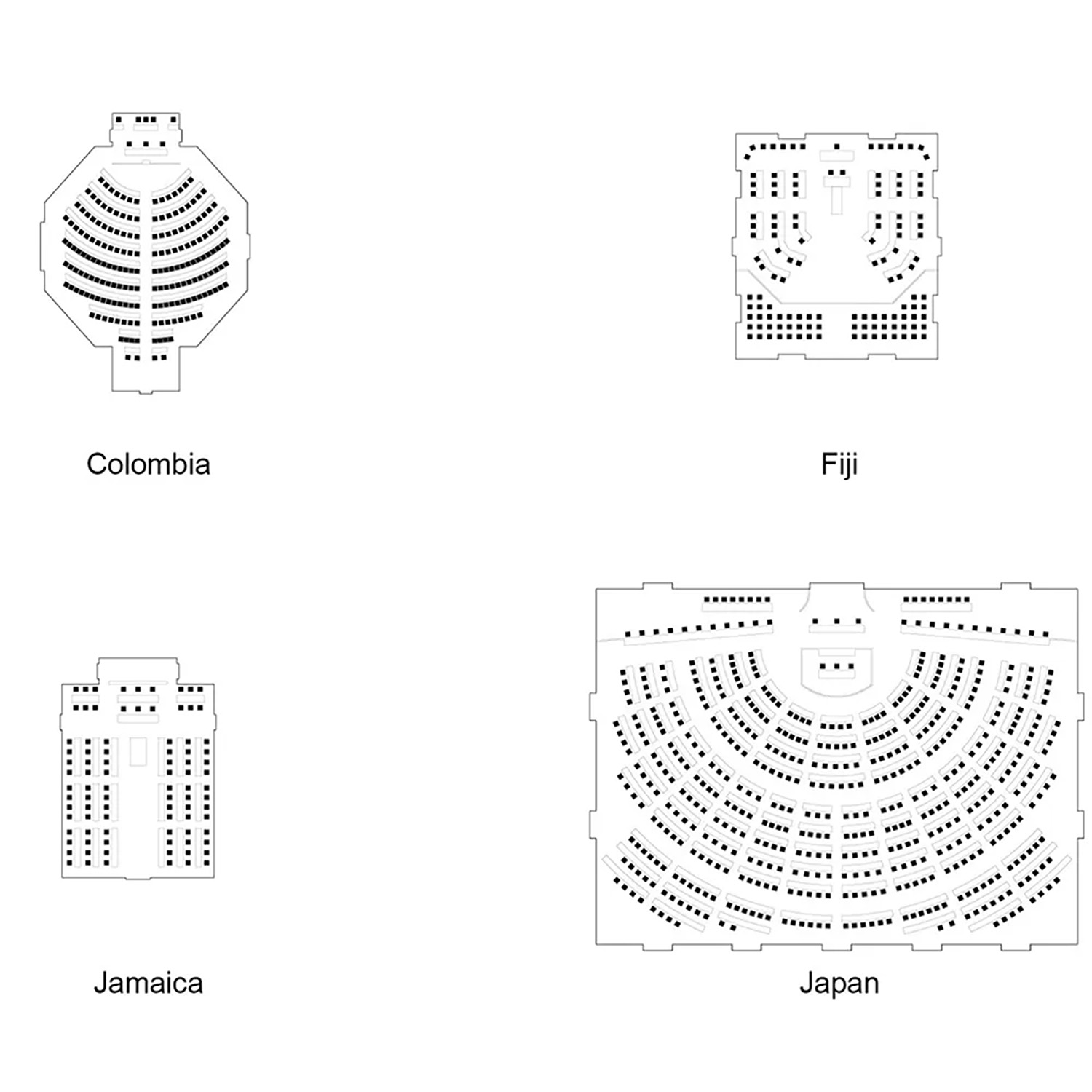 The Art of AssemblyXIII: Designing Politics. Architectures of Deliberation and Decision-Making (Markus Miessen, David Mulder van der Vegt & Florian MalzacherTimes may change, but not so the venues of official democratic decision-making: opposing benches, horseshoes, frontal classroom style, circles or semi-circles – nearly all parliaments across the planet follow one of these spatial logics. But the shape of plenary halls not only create metaphors of representation they also organize and influence very concretely how legislative bodies work. The 13th edition of The Art of Assembly looks at how architecture shapes decision-making – and at what alternatives there might be. David Mulder van der Vegt, who has researched the design of the parliament halls of all 193 member states of the United Nations, reflects on the...2022-03-161h 35
The Art of AssemblyXIII: Designing Politics. Architectures of Deliberation and Decision-Making (Markus Miessen, David Mulder van der Vegt & Florian MalzacherTimes may change, but not so the venues of official democratic decision-making: opposing benches, horseshoes, frontal classroom style, circles or semi-circles – nearly all parliaments across the planet follow one of these spatial logics. But the shape of plenary halls not only create metaphors of representation they also organize and influence very concretely how legislative bodies work. The 13th edition of The Art of Assembly looks at how architecture shapes decision-making – and at what alternatives there might be. David Mulder van der Vegt, who has researched the design of the parliament halls of all 193 member states of the United Nations, reflects on the...2022-03-161h 35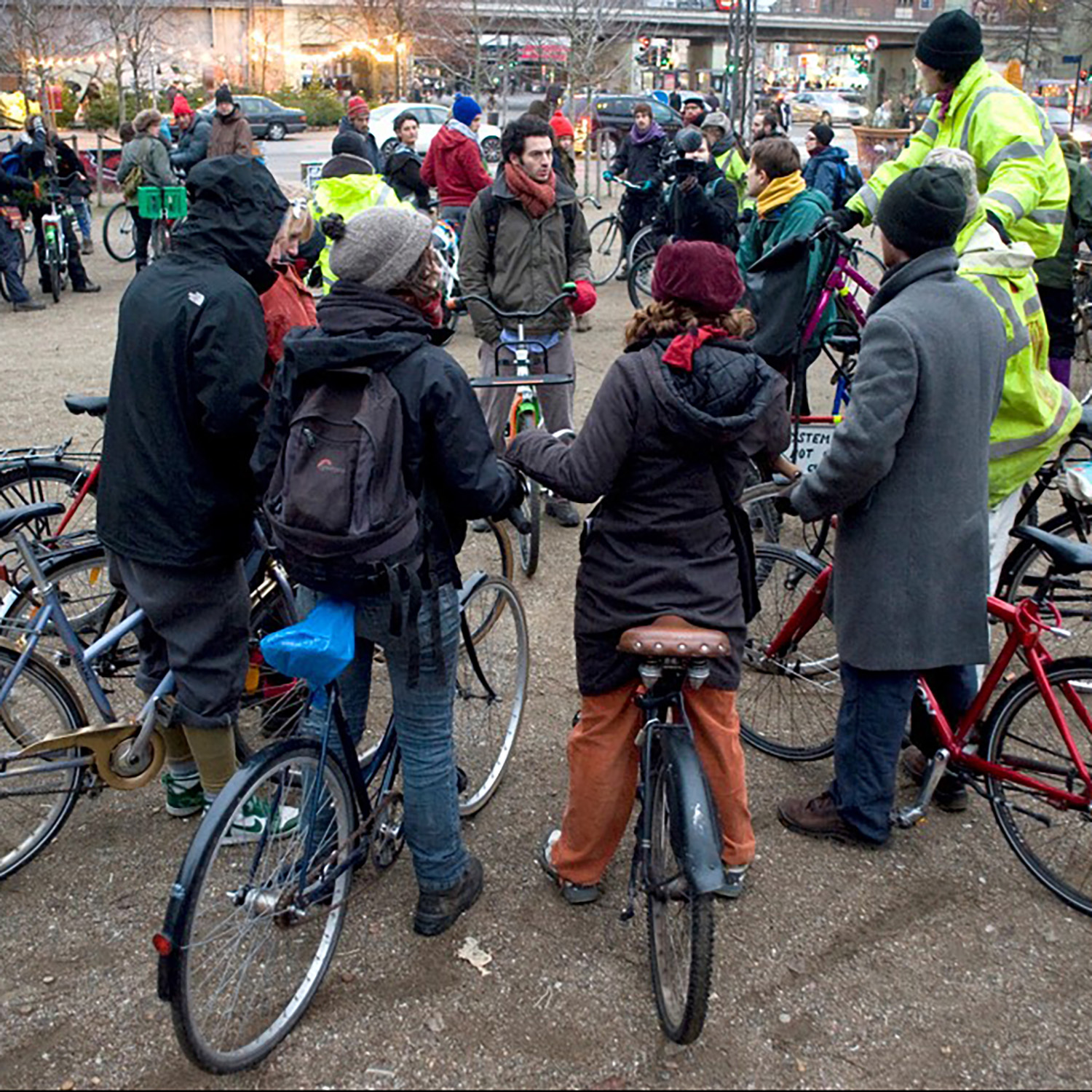 The Art of AssemblyXII: Pitfalls of Representation (Milo Rau, School of Resistance, The Laboratory of Insurrectionary Imagination & Florian Malzacher)Numerous theater makers and artists have been inspired by the concept and the performative reality of assembly in recent years, creating, directing, initiating trials, parliaments, congresses, summits and assemblies in white cubes and black boxes, on proscenium stages and public spaces. But the relationship between theatrical and political representation remains complicated. What are difference and proximity between physical presence within an art institution and on, for example, an occupied square? The 12th edition of The Art of Assembly looks at the often productive, often ambivalent relationship between art and activism, inviting three very different initiators of assemblies: Theater director Milo...2022-02-051h 48
The Art of AssemblyXII: Pitfalls of Representation (Milo Rau, School of Resistance, The Laboratory of Insurrectionary Imagination & Florian Malzacher)Numerous theater makers and artists have been inspired by the concept and the performative reality of assembly in recent years, creating, directing, initiating trials, parliaments, congresses, summits and assemblies in white cubes and black boxes, on proscenium stages and public spaces. But the relationship between theatrical and political representation remains complicated. What are difference and proximity between physical presence within an art institution and on, for example, an occupied square? The 12th edition of The Art of Assembly looks at the often productive, often ambivalent relationship between art and activism, inviting three very different initiators of assemblies: Theater director Milo...2022-02-051h 48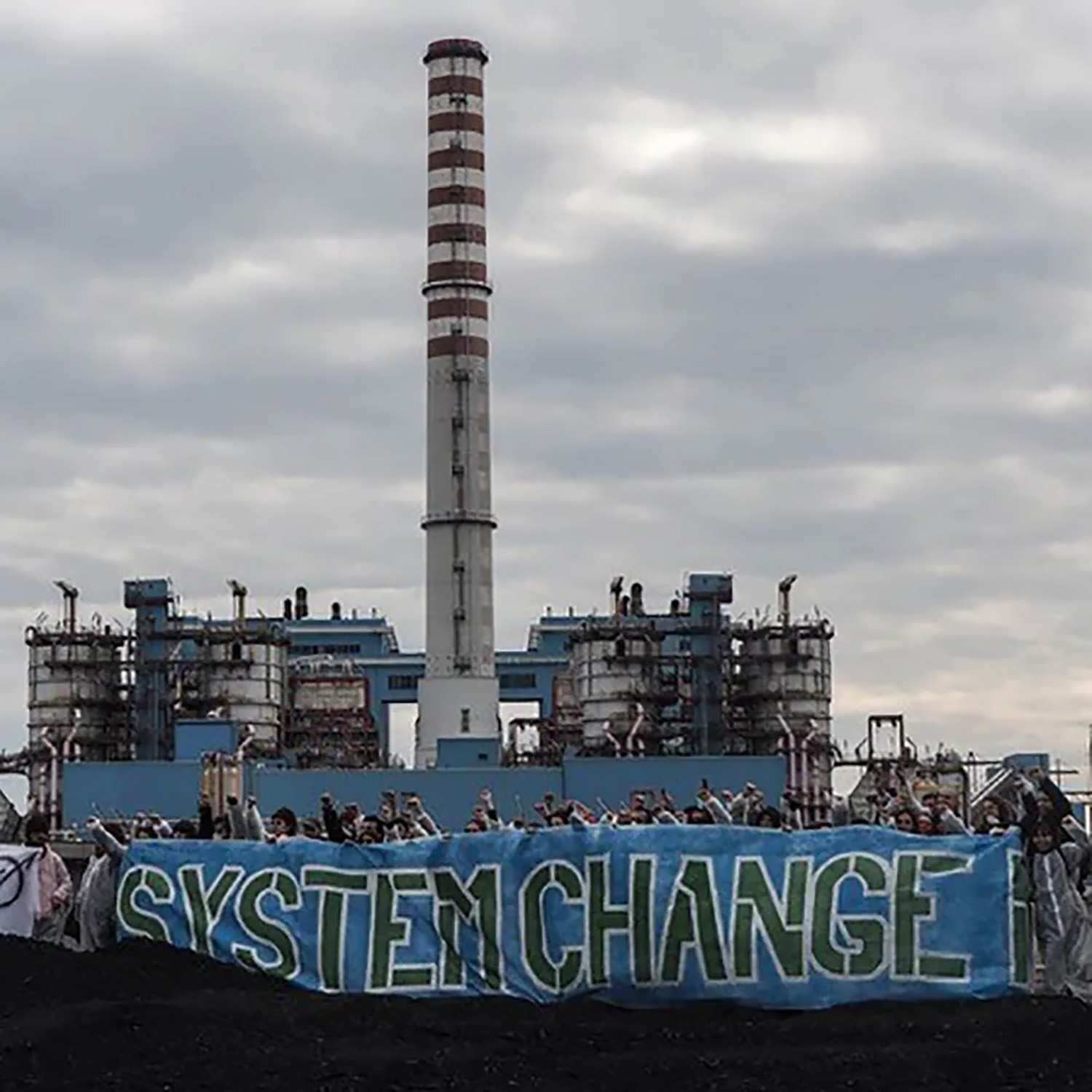 The Art of AssemblyX: Politiche della moltitudine – ITALIAN VERSION (Antonio Negri, Anna Clara Basilicò & Marco Baravalle)La moltitudine è una "molteplicità di singolarità che agiscono insieme" (Antonio Negri/Michael Hardt), "i molti, visti come molti" (Paolo Virno): una rete che non è omogenea né autoidentica. Il concetto di moltitudine è controproposto all'idea di popolo. Un soggetto rivoluzionario difficile da afferrare o da definire - di volta in volta lodato o criticato per questa apertura. La decima edizione di "The Art of Assembly" affronta il tema dell'assemblea come strumento e strategia della moltitudine per prendere decisioni e comunicare. Antonio Negri rivisita il concetto che - insieme a Michael Hardt - ha reso popolare nei primi anni 2000, mentre l'attivista climatica Anna Clara...2021-11-301h 36
The Art of AssemblyX: Politiche della moltitudine – ITALIAN VERSION (Antonio Negri, Anna Clara Basilicò & Marco Baravalle)La moltitudine è una "molteplicità di singolarità che agiscono insieme" (Antonio Negri/Michael Hardt), "i molti, visti come molti" (Paolo Virno): una rete che non è omogenea né autoidentica. Il concetto di moltitudine è controproposto all'idea di popolo. Un soggetto rivoluzionario difficile da afferrare o da definire - di volta in volta lodato o criticato per questa apertura. La decima edizione di "The Art of Assembly" affronta il tema dell'assemblea come strumento e strategia della moltitudine per prendere decisioni e comunicare. Antonio Negri rivisita il concetto che - insieme a Michael Hardt - ha reso popolare nei primi anni 2000, mentre l'attivista climatica Anna Clara...2021-11-301h 36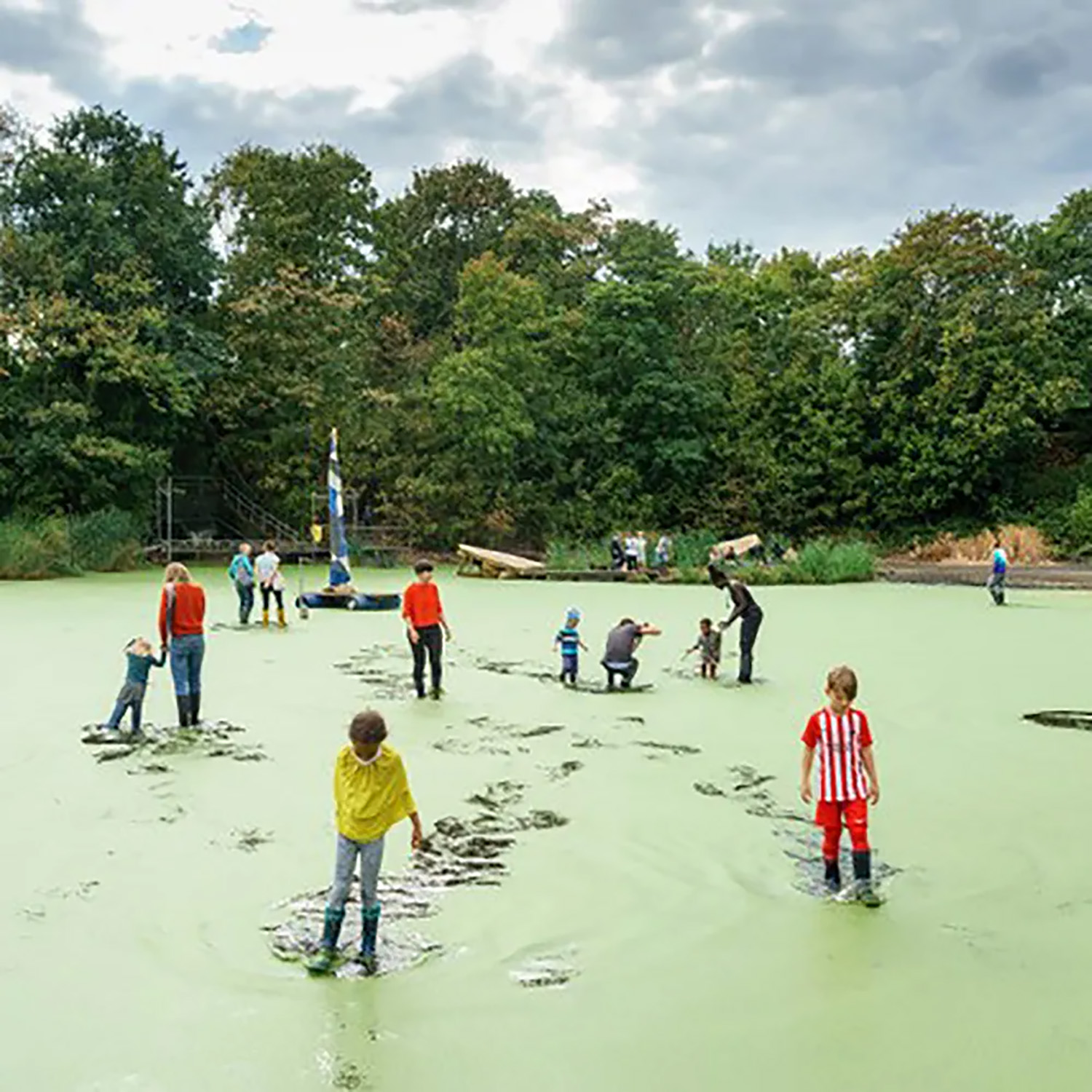 The Art of AssemblyXI: Architectures of Hospitality (Merve Bedir, Benjamin Foerster-Baldenius / raumlabor berlin, Marina Otero Verzier & Florian Malzacher)Hospitality – with all its seeming generosity – is a complex concept: Who is invited into our societies, our assemblies? What are the relationships between guests and hosts? Is unconditional hospitality possible? The architecture of public space, the infrastructures of coming together, the borders and thresholds around them inform how we come together, what is prevented from happening, what is possible. The 11th edition of The Art of Assembly looks at the physical relations of gatherings, how bodies and objects are organised, how radical concepts of democracy can be represented in space. Architect and researcher Merve Bedir since long researches infrastructures of hosp...2021-11-201h 41
The Art of AssemblyXI: Architectures of Hospitality (Merve Bedir, Benjamin Foerster-Baldenius / raumlabor berlin, Marina Otero Verzier & Florian Malzacher)Hospitality – with all its seeming generosity – is a complex concept: Who is invited into our societies, our assemblies? What are the relationships between guests and hosts? Is unconditional hospitality possible? The architecture of public space, the infrastructures of coming together, the borders and thresholds around them inform how we come together, what is prevented from happening, what is possible. The 11th edition of The Art of Assembly looks at the physical relations of gatherings, how bodies and objects are organised, how radical concepts of democracy can be represented in space. Architect and researcher Merve Bedir since long researches infrastructures of hosp...2021-11-201h 41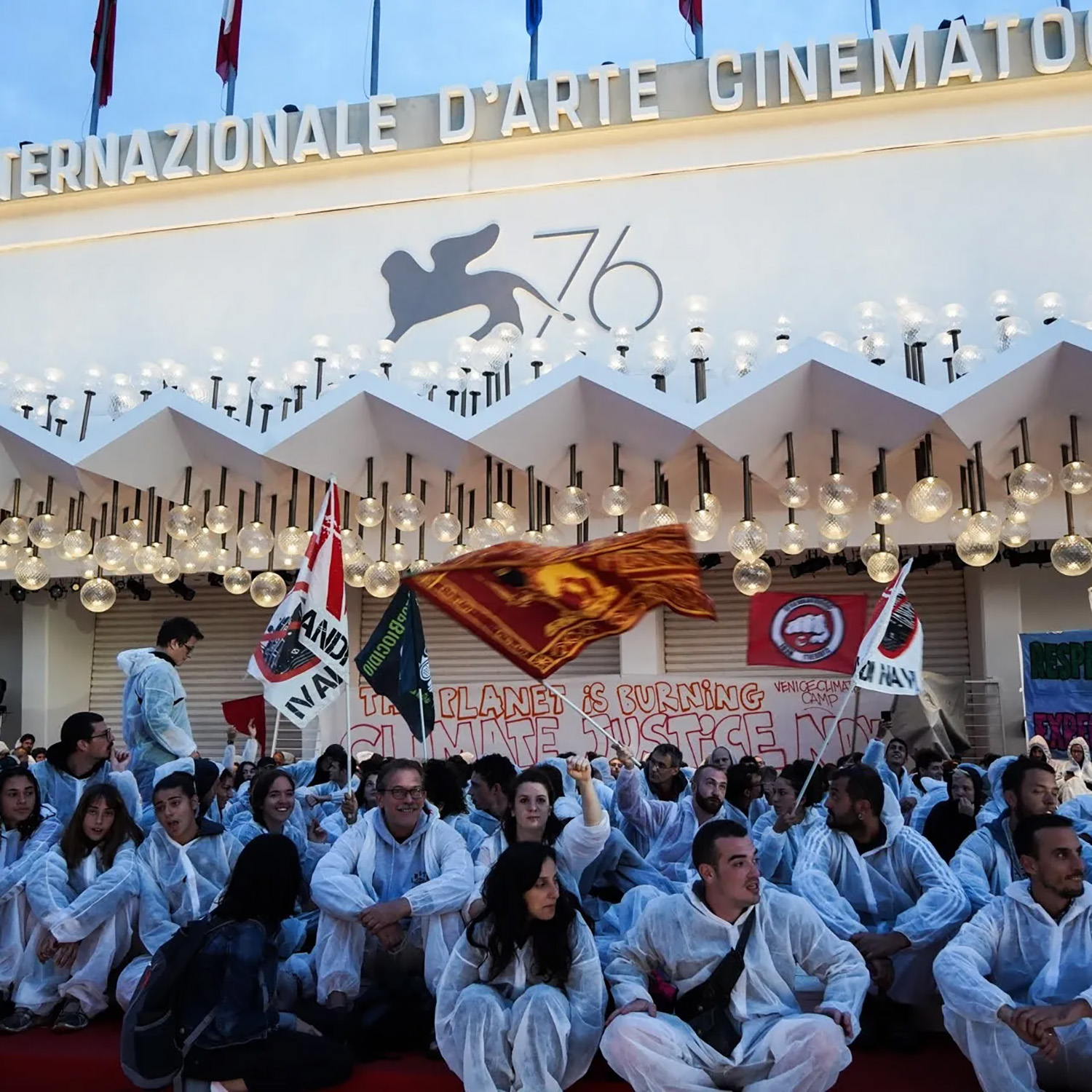 The Art of AssemblyX: The Politics of Multitude (Antonio Negri, Anna Clara Basilicò & Marco Baravalle)Multitude is a „multiplicity of singularities acting together“ (Antonio Negri/Michael Hardt), „the many, seen as being many“ (Paolo Virno): a network that is neither homogeneous nor self-identical. The concept of the multitude is a counterproposal to the idea of the people, a revolutionary subject that is difficult to grasp or to define – and has been both praised and criticized for this openness. The 10th edition of The Art of Assembly looks at the role of the assembly as a tool and strategy for the multitude to make decisions and to communicate. Political theorist Antonio Negri revisits the concept he – together wit...2021-11-081h 37
The Art of AssemblyX: The Politics of Multitude (Antonio Negri, Anna Clara Basilicò & Marco Baravalle)Multitude is a „multiplicity of singularities acting together“ (Antonio Negri/Michael Hardt), „the many, seen as being many“ (Paolo Virno): a network that is neither homogeneous nor self-identical. The concept of the multitude is a counterproposal to the idea of the people, a revolutionary subject that is difficult to grasp or to define – and has been both praised and criticized for this openness. The 10th edition of The Art of Assembly looks at the role of the assembly as a tool and strategy for the multitude to make decisions and to communicate. Political theorist Antonio Negri revisits the concept he – together wit...2021-11-081h 37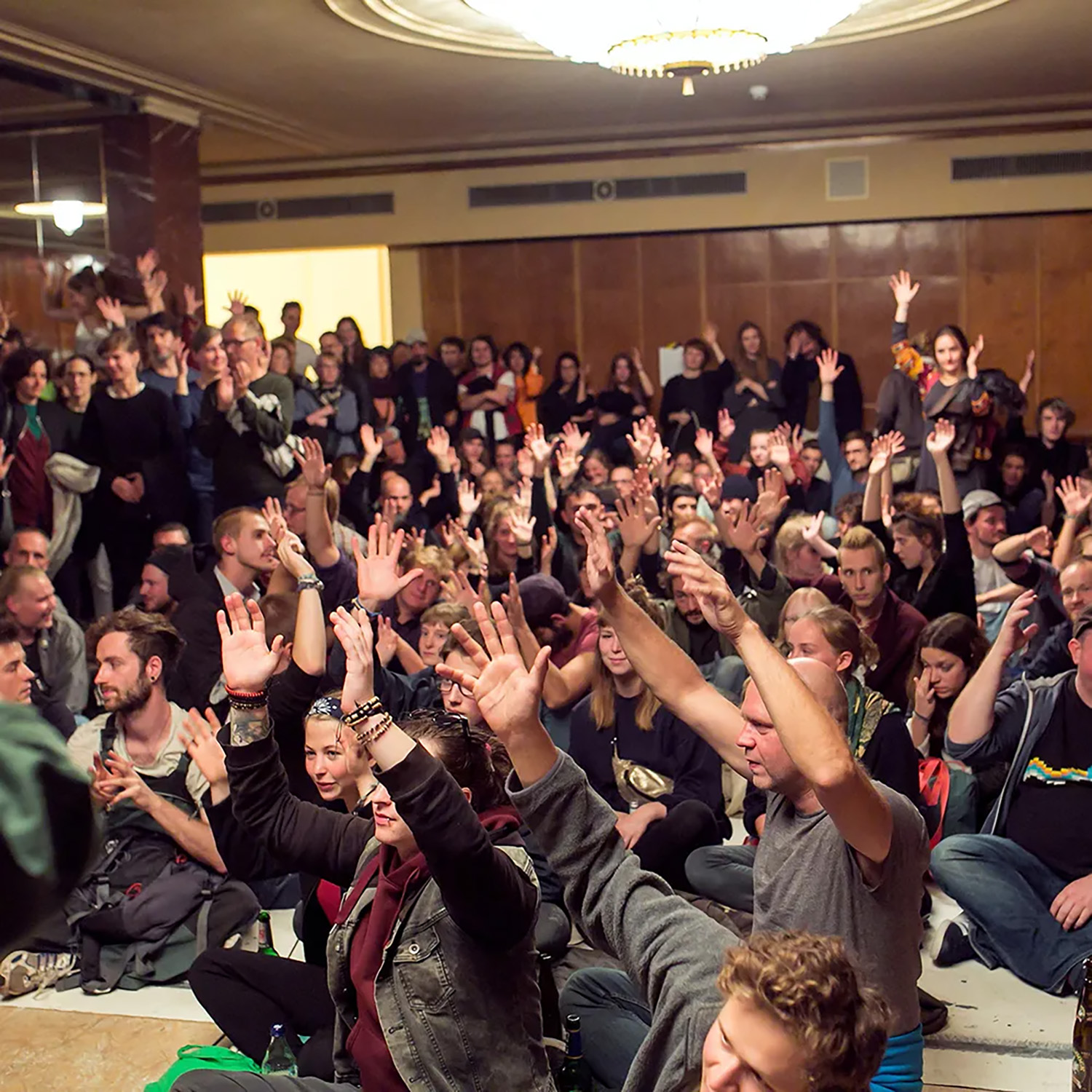 The Art of AssemblyIX: Reassembling Institutions (Ahmed Al-Nawas, Nora Sternfeld, Sarah Waterfeld / Staub zu Glitzer & Florian Malzacher)Can institutions be driving forces of change? Or are they doomed to be bastions of the status quo, capable of slow reforms at best? Arguments about institutions, instituting and institutionalizing are at the core of many progressive movements. But what would it actually mean to imagine institutions in a radical democratic way? How can we understand museums, theatres, galleries, festivals, biennales as assemblies – not only symbolically but by consequently re-negotiating their organizational structures? Curator Ahmed Al-Nawas, focusing in his work on collaborative, anti-racist and de-colonizing practices, takes a close look at the role of authorship and representation within collectives. Nora St...2021-10-301h 41
The Art of AssemblyIX: Reassembling Institutions (Ahmed Al-Nawas, Nora Sternfeld, Sarah Waterfeld / Staub zu Glitzer & Florian Malzacher)Can institutions be driving forces of change? Or are they doomed to be bastions of the status quo, capable of slow reforms at best? Arguments about institutions, instituting and institutionalizing are at the core of many progressive movements. But what would it actually mean to imagine institutions in a radical democratic way? How can we understand museums, theatres, galleries, festivals, biennales as assemblies – not only symbolically but by consequently re-negotiating their organizational structures? Curator Ahmed Al-Nawas, focusing in his work on collaborative, anti-racist and de-colonizing practices, takes a close look at the role of authorship and representation within collectives. Nora St...2021-10-301h 41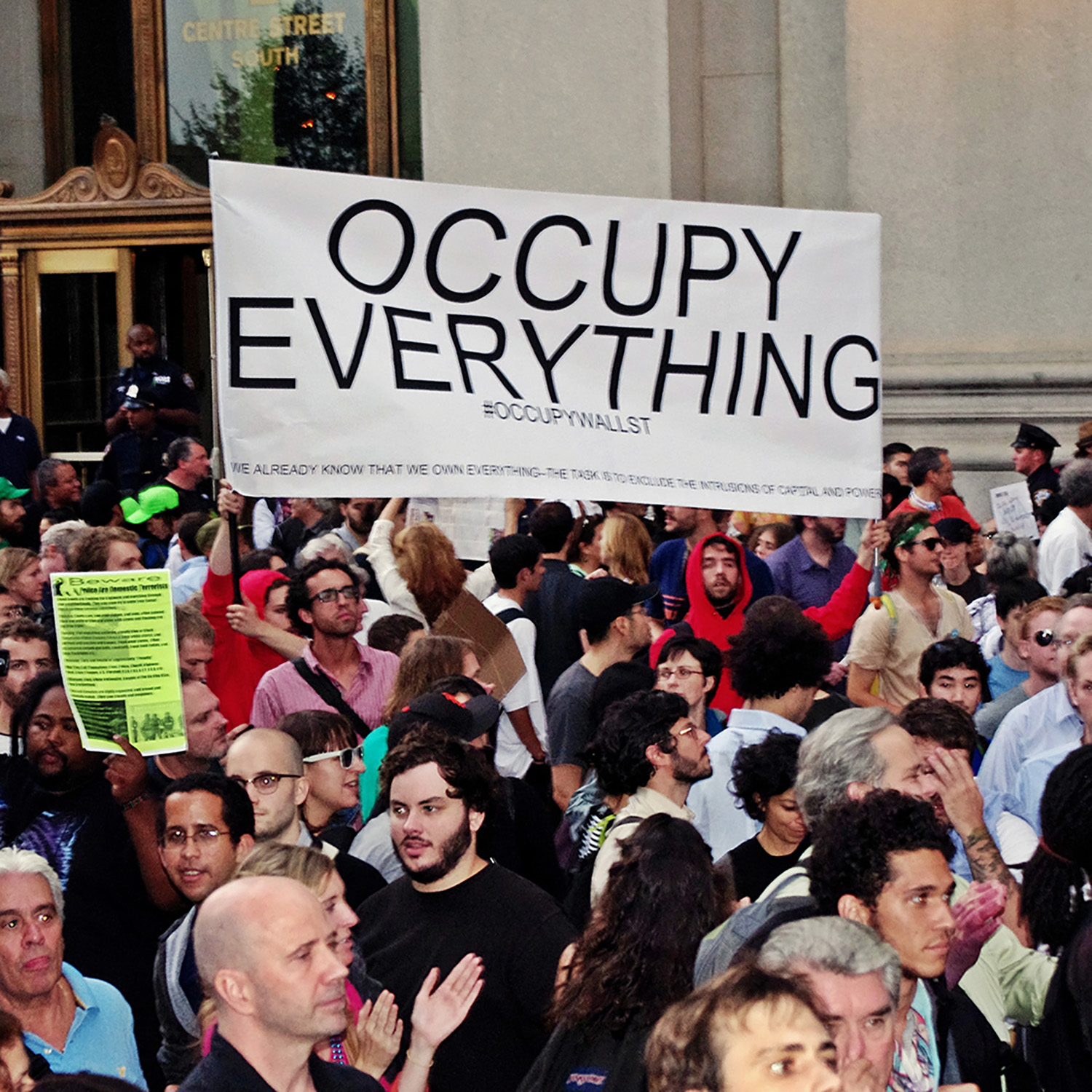 The Art of AssemblyVIII: 10 Years Occupy Wall Street (Judith Butler, Max Haiven & Florian Malzacher)About ten years ago the series of square occupations all over the world begun – after Tunis, Cairo, Athens, Madrid the wave swept over to New York. Mid-September 2011 the fist protest begun in the midst of Lower Manhattan’s bank towers: Occupy Wall Street became a symbol of resistance against financial capitalism and big corporations. And it’s assemblies set examples for a different way of discussing and decision making that influences activists all over the word but also resonated in theatre and art. On the occasion of the 10th anniversary of the occupation of Zucchotti Square the 8th edition of The Ar...2021-09-241h 23
The Art of AssemblyVIII: 10 Years Occupy Wall Street (Judith Butler, Max Haiven & Florian Malzacher)About ten years ago the series of square occupations all over the world begun – after Tunis, Cairo, Athens, Madrid the wave swept over to New York. Mid-September 2011 the fist protest begun in the midst of Lower Manhattan’s bank towers: Occupy Wall Street became a symbol of resistance against financial capitalism and big corporations. And it’s assemblies set examples for a different way of discussing and decision making that influences activists all over the word but also resonated in theatre and art. On the occasion of the 10th anniversary of the occupation of Zucchotti Square the 8th edition of The Ar...2021-09-241h 23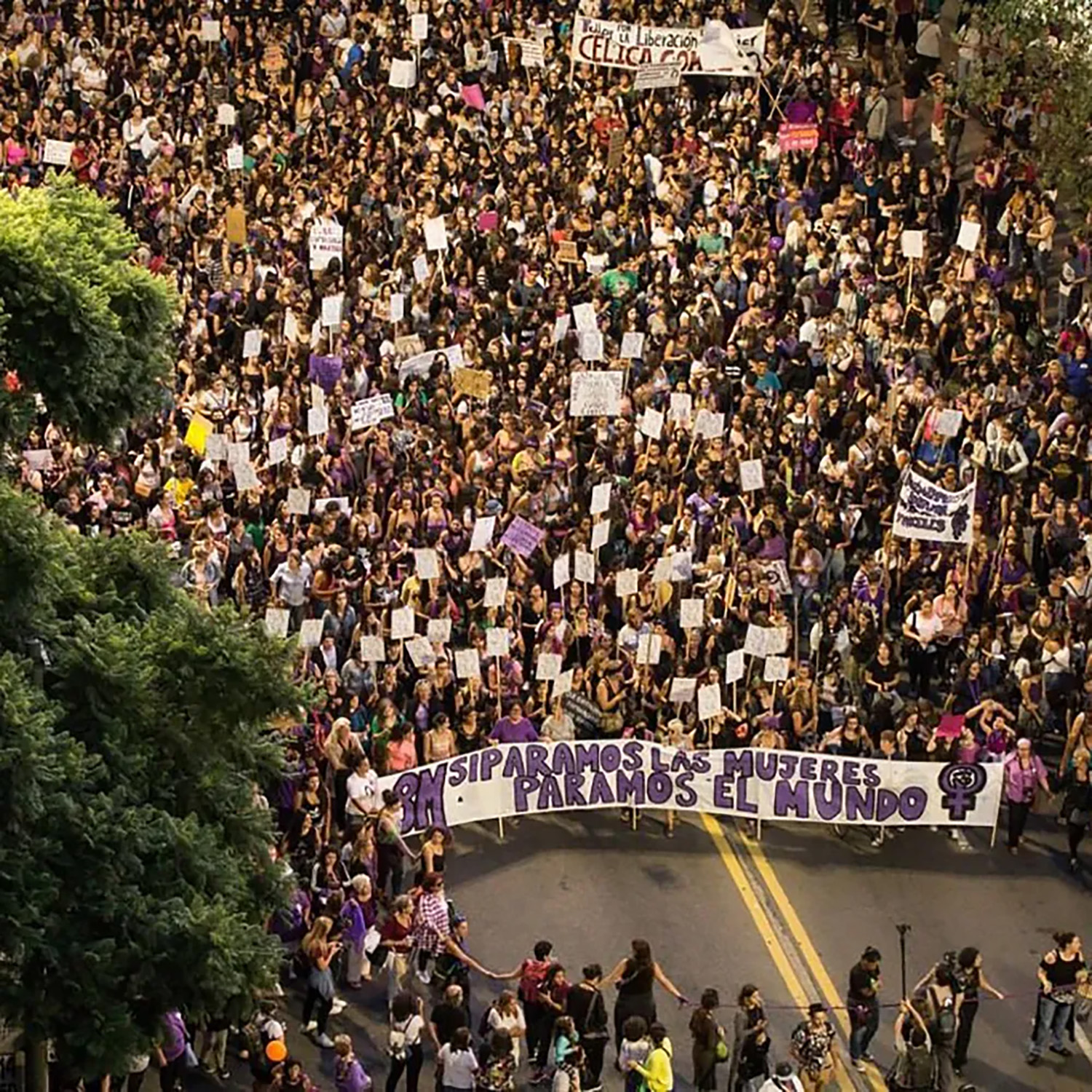 The Art of AssemblyVII: Agonistic Gatherings (Didier Eribon, Chantal Mouffe & Florian Malzacher)The assemblies of the numerous square occupations during the last decade have often been laboratories of radical forms of democracy, experimenting with non-hierarchical structures and consensus models instead of majority voting. While watching these movements with sympathy, political theorist Chantal Mouffe emphasises also the necessity of dissensus, of an agonistic pluralism in which adversaries openly fight for their hegemonic projects. Philosopher and sociologist Didier Eribon reflects on the conditions and the limits of such mobilisations and insists on the unsurpassable plurality of movements like the gilets jaunes in France, or more recently, the massive strikes and protests against the demolition...2021-09-211h 55
The Art of AssemblyVII: Agonistic Gatherings (Didier Eribon, Chantal Mouffe & Florian Malzacher)The assemblies of the numerous square occupations during the last decade have often been laboratories of radical forms of democracy, experimenting with non-hierarchical structures and consensus models instead of majority voting. While watching these movements with sympathy, political theorist Chantal Mouffe emphasises also the necessity of dissensus, of an agonistic pluralism in which adversaries openly fight for their hegemonic projects. Philosopher and sociologist Didier Eribon reflects on the conditions and the limits of such mobilisations and insists on the unsurpassable plurality of movements like the gilets jaunes in France, or more recently, the massive strikes and protests against the demolition...2021-09-211h 55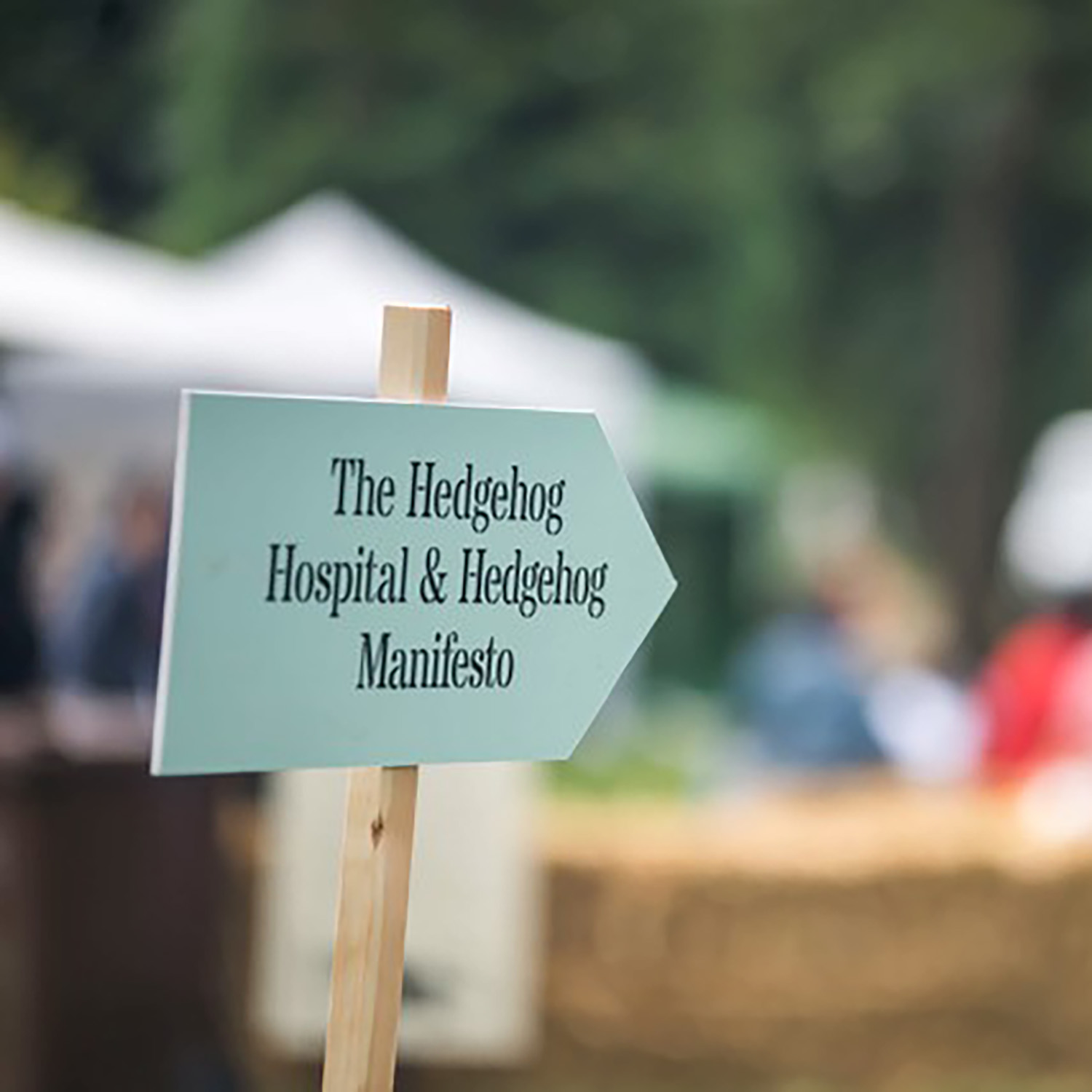 The Art of AssemblyVI: Assembling More Than Humans (Radha D‘Souza, Sibylle Peters & Florian Malzacher)Discussions about representation in assemblies, democracies and legal cases are usually reserved to human beings. But recent discussions around the Anthropocene and new materialism have fiercely challenged such anthropocentric limitations. Professor for Law Radha D’Souza argues that the concept of rights is fundamentally flawed as it is always associated with private property, contracts, and contractual social relations. Drawing on insights from indigenous cultures and everyday practices, she points out the centrality of assembly for collective life among animals and humans. Performance maker and theorist Sibylle Peters deals in her practice as theorist and theatre maker since many years with co...2021-06-221h 28
The Art of AssemblyVI: Assembling More Than Humans (Radha D‘Souza, Sibylle Peters & Florian Malzacher)Discussions about representation in assemblies, democracies and legal cases are usually reserved to human beings. But recent discussions around the Anthropocene and new materialism have fiercely challenged such anthropocentric limitations. Professor for Law Radha D’Souza argues that the concept of rights is fundamentally flawed as it is always associated with private property, contracts, and contractual social relations. Drawing on insights from indigenous cultures and everyday practices, she points out the centrality of assembly for collective life among animals and humans. Performance maker and theorist Sibylle Peters deals in her practice as theorist and theatre maker since many years with co...2021-06-221h 28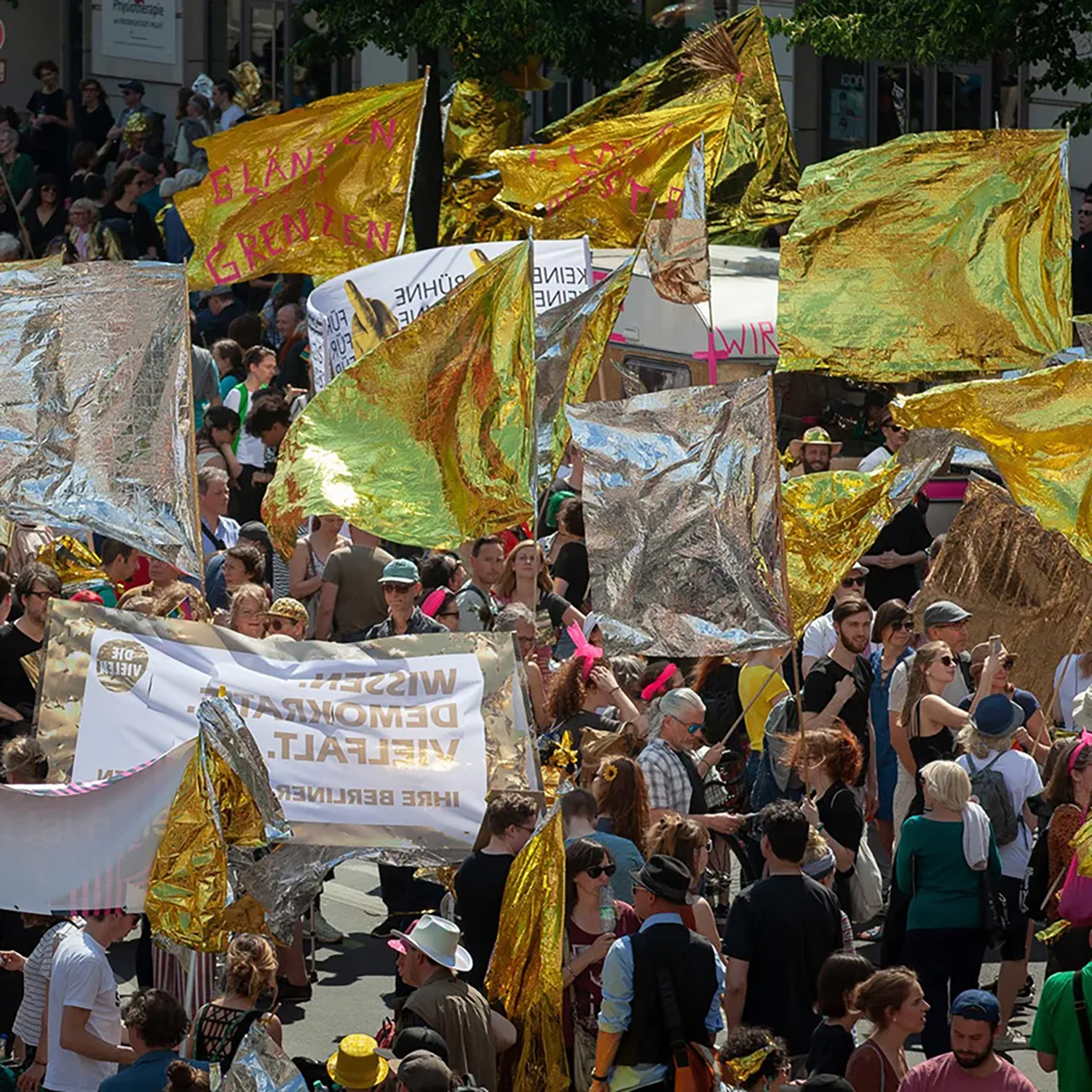 The Art of AssemblyV: Versammlung der Vielen (Eduard Freudmann, Gin Müller, Heidrun Primas, Philine Rinnert & Florian Malzacher) – IN GERMAN LANGUAGE"Die Vielen“ sind ein solidarischer Zusammenschluss zahlreicher Kunst- und Kultureinrichtungen in Österreich und Deutschland. Diese Sonderausgabe wirft einen Blick auf verschiedene künstlerisch-aktivistische Aktionen im öffentlichen Raum Österreichs: Heidrun Primas, Leiterin des Grazer Forum Stadtpark, ist Mitinitiatorin der "Camps für Moria"; die Künstler Eduard Freudmann und Gin Müller protestieren mit der "Schandwache" gegen ein Denkmal des antisemitischen Wiener Bürgermeisters Karl Lueger; die Bühnenbildnerin Philine Rinnert ist eine zentrale Protagonistin „Der Vielen" in Deutschland.2021-06-041h 30
The Art of AssemblyV: Versammlung der Vielen (Eduard Freudmann, Gin Müller, Heidrun Primas, Philine Rinnert & Florian Malzacher) – IN GERMAN LANGUAGE"Die Vielen“ sind ein solidarischer Zusammenschluss zahlreicher Kunst- und Kultureinrichtungen in Österreich und Deutschland. Diese Sonderausgabe wirft einen Blick auf verschiedene künstlerisch-aktivistische Aktionen im öffentlichen Raum Österreichs: Heidrun Primas, Leiterin des Grazer Forum Stadtpark, ist Mitinitiatorin der "Camps für Moria"; die Künstler Eduard Freudmann und Gin Müller protestieren mit der "Schandwache" gegen ein Denkmal des antisemitischen Wiener Bürgermeisters Karl Lueger; die Bühnenbildnerin Philine Rinnert ist eine zentrale Protagonistin „Der Vielen" in Deutschland.2021-06-041h 30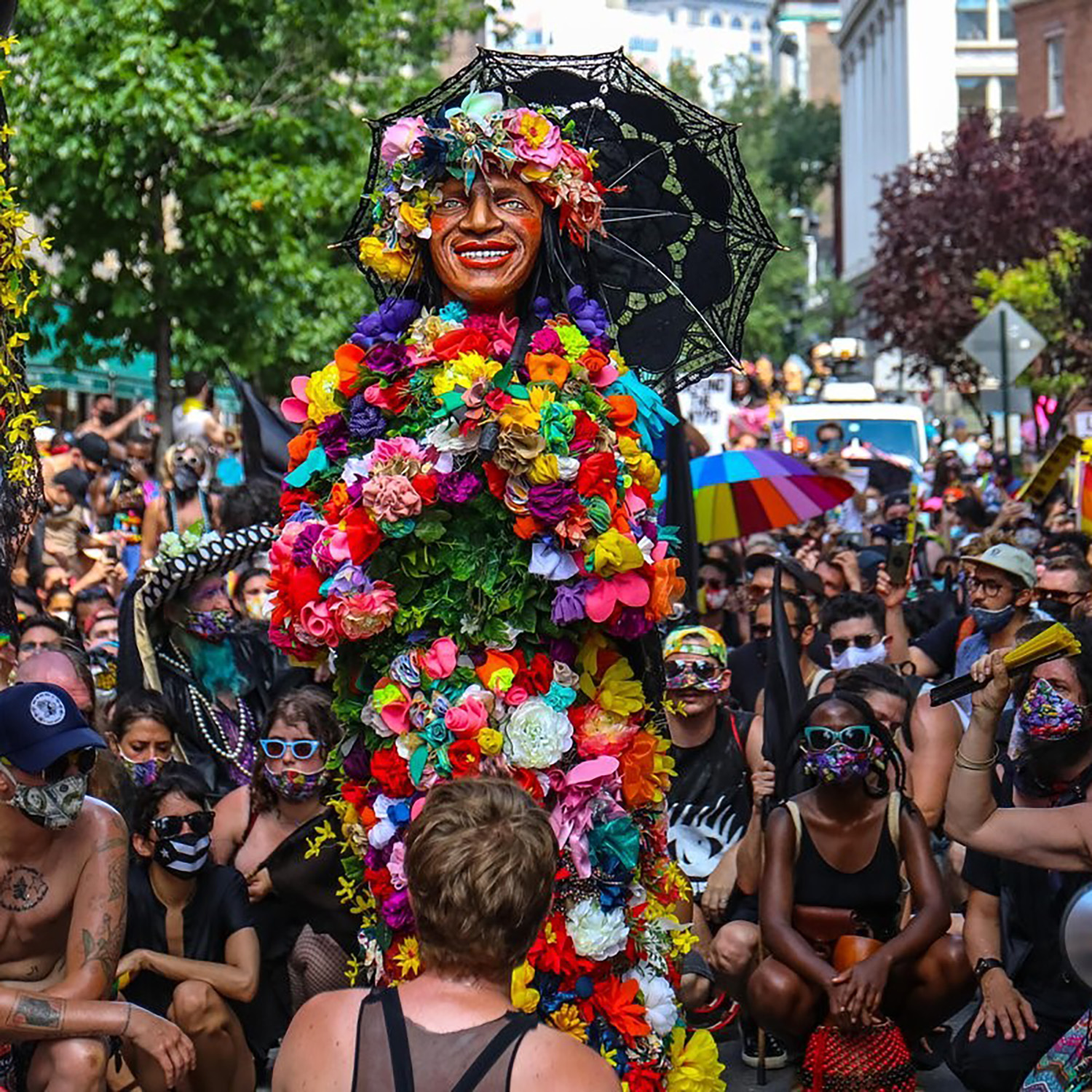 The Art of AssemblyIV: Choirs of Precarity & Power (Claudia Bosse, The Church of Stop Shopping, Alia Mossallam & Florian Malzacher)Choirs are a very specific form of assembling - from representing “the people” in Greek tragedy via all kinds of religious choirs, political choirs, revolutionary choirs up to the legendary human mic at Occupy Wall Street and the iconic chants at Tahrir Square in 2011. Theatre director Claudia Bosse, art theorist Alia Mossallam, and the activists of The Church of Stop Shopping discuss the potential (and perhaps dangers), the tenderness, the precarity and the power of synchronised singing, chanting, shouting along concrete artistic and activistic practices in Cairo, New York and Vienna.2021-04-161h 27
The Art of AssemblyIV: Choirs of Precarity & Power (Claudia Bosse, The Church of Stop Shopping, Alia Mossallam & Florian Malzacher)Choirs are a very specific form of assembling - from representing “the people” in Greek tragedy via all kinds of religious choirs, political choirs, revolutionary choirs up to the legendary human mic at Occupy Wall Street and the iconic chants at Tahrir Square in 2011. Theatre director Claudia Bosse, art theorist Alia Mossallam, and the activists of The Church of Stop Shopping discuss the potential (and perhaps dangers), the tenderness, the precarity and the power of synchronised singing, chanting, shouting along concrete artistic and activistic practices in Cairo, New York and Vienna.2021-04-161h 27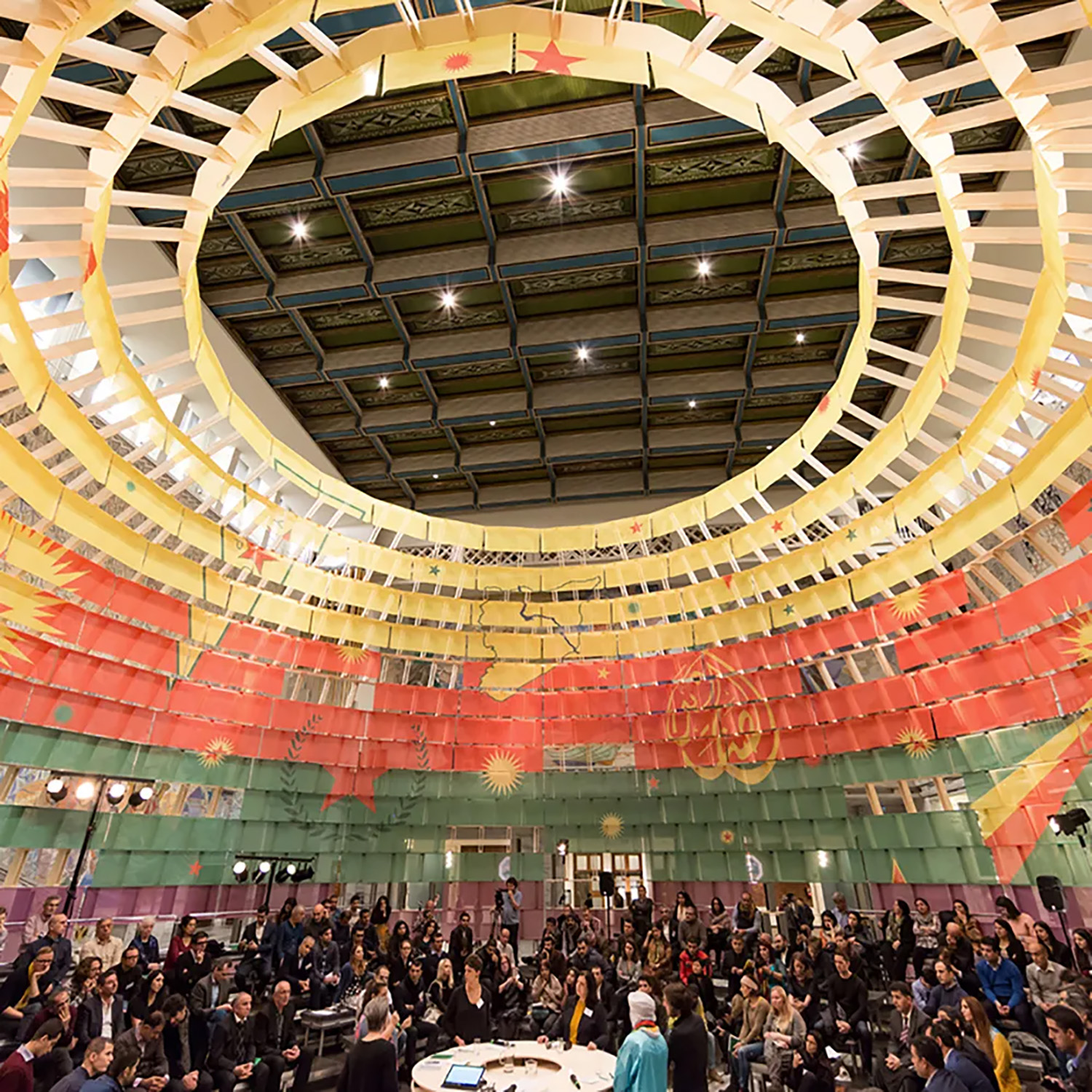 The Art of AssemblyIII: Assemblism (Jonas Staal, Jodi Dean & Florian Malzacher)"Assemblism” is a term used by Dutch artist Jonas Staal to describe the role of art, performance and theater in the performative assembly of mass protests and social movements, which is central to his own artistic work. US-American political theorist Jodi Dean on the other hand emphasizes in her writing that social movements need to be translated into a new communist party if they want to become sustainable. So, what is the potential of art in not only investigating or inventing new forms of assembly but also in contributing to the process of transforming them into sustainable organizational structures? And ho...2021-03-311h 34
The Art of AssemblyIII: Assemblism (Jonas Staal, Jodi Dean & Florian Malzacher)"Assemblism” is a term used by Dutch artist Jonas Staal to describe the role of art, performance and theater in the performative assembly of mass protests and social movements, which is central to his own artistic work. US-American political theorist Jodi Dean on the other hand emphasizes in her writing that social movements need to be translated into a new communist party if they want to become sustainable. So, what is the potential of art in not only investigating or inventing new forms of assembly but also in contributing to the process of transforming them into sustainable organizational structures? And ho...2021-03-311h 34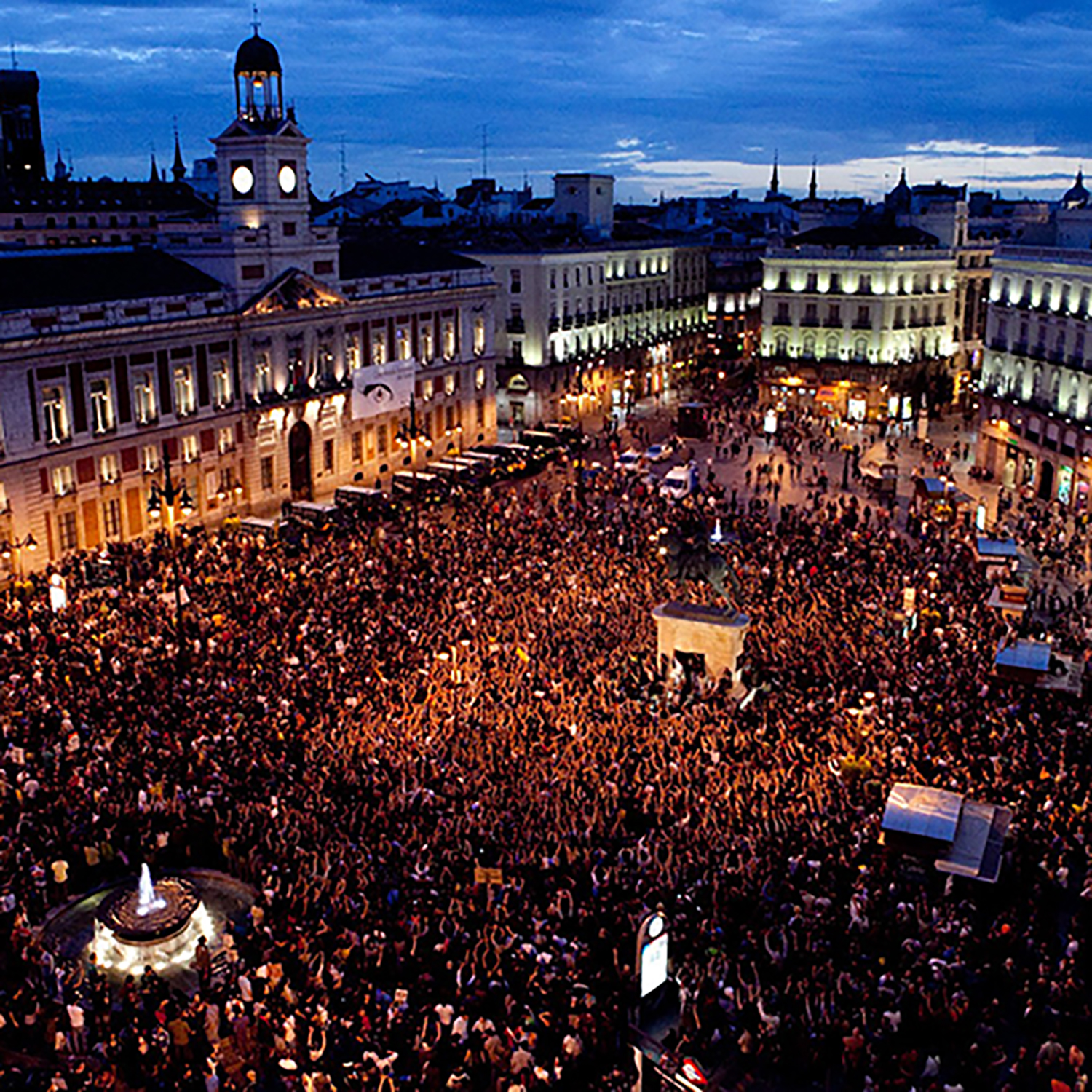 The Art of AssemblyII: Assemblies as Backbones of Social Movements (Oliver Ressler, Julia Ramírez-Blanco & Florian Malzacher)The General Assembly has been at the core of many social movements during the last decade: A zone of gathering, of building community, of experimenting with the way democracy can function. A space not only for trying out but living a different kind of decision making. Art historian Julia Ramírez-Blanco (Barcelona) just finished a book on the Spanish 15M movement, Oliver Ressler (Vienna) is one of the main documentarists of worldwide social mobilizations since many years. In the second edition of Gesellschaftsspiele – The Art of Assembly they reflect the crucial role of collective decision making for developing political alternatives.2021-02-261h 25
The Art of AssemblyII: Assemblies as Backbones of Social Movements (Oliver Ressler, Julia Ramírez-Blanco & Florian Malzacher)The General Assembly has been at the core of many social movements during the last decade: A zone of gathering, of building community, of experimenting with the way democracy can function. A space not only for trying out but living a different kind of decision making. Art historian Julia Ramírez-Blanco (Barcelona) just finished a book on the Spanish 15M movement, Oliver Ressler (Vienna) is one of the main documentarists of worldwide social mobilizations since many years. In the second edition of Gesellschaftsspiele – The Art of Assembly they reflect the crucial role of collective decision making for developing political alternatives.2021-02-261h 25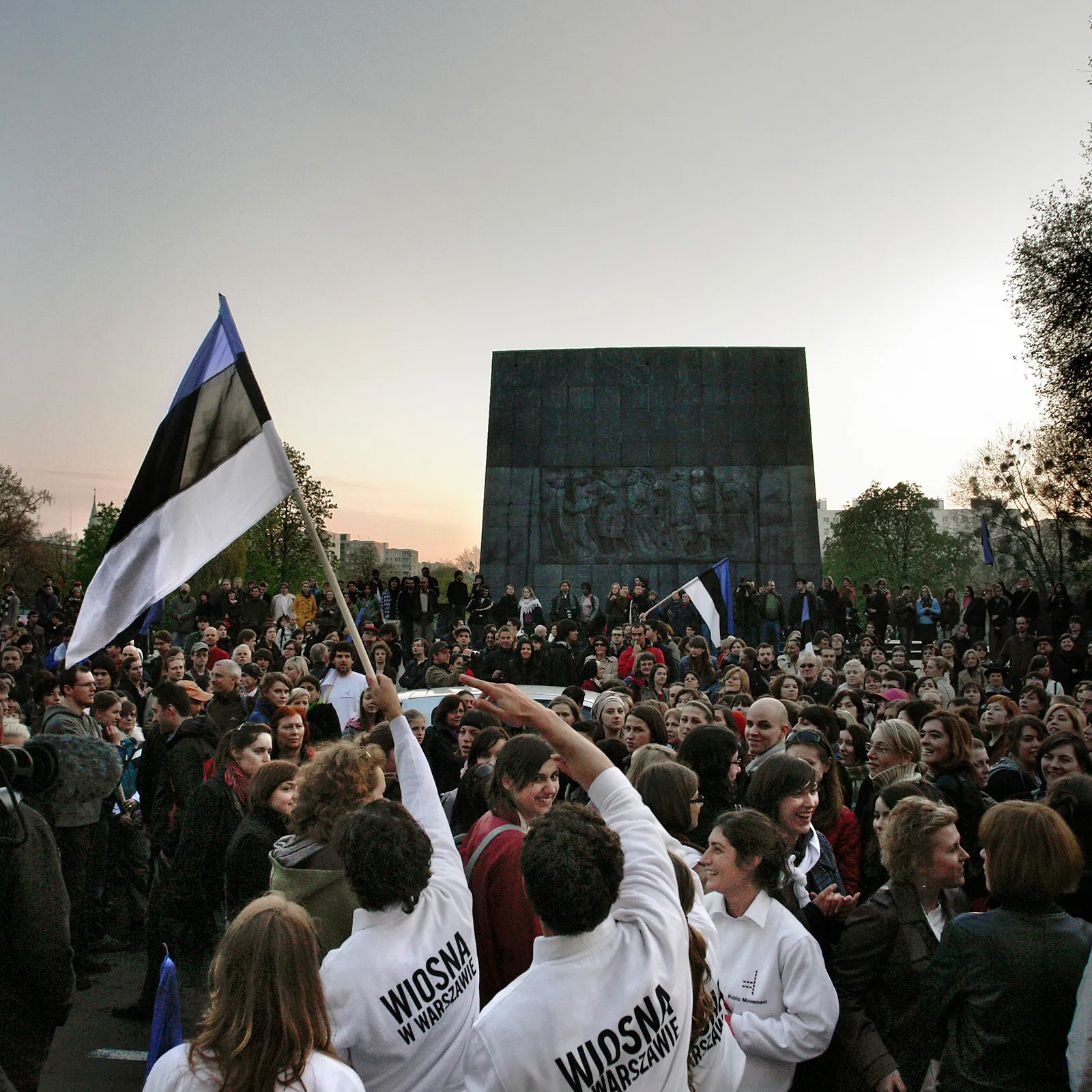 The Art of AssemblyI: Assembly as Preenactment (Oliver Marchart, Dana Yahalomi & Florian Malzacher)„Preenactment“ is a term used by choreographer and artist Dana Yahalomi / Public Movement (Tel Aviv) as well as by political theorist Oliver Marchart (Wien) to describe the artistic anticipation of political events to come. So, how can political or artistic assemblies become rehearsals or trainings for an unpredictable future? 2021-01-2301 min
The Art of AssemblyI: Assembly as Preenactment (Oliver Marchart, Dana Yahalomi & Florian Malzacher)„Preenactment“ is a term used by choreographer and artist Dana Yahalomi / Public Movement (Tel Aviv) as well as by political theorist Oliver Marchart (Wien) to describe the artistic anticipation of political events to come. So, how can political or artistic assemblies become rehearsals or trainings for an unpredictable future? 2021-01-2301 min